
District Vice Presidents
Charles Rowlett • District 1
298 Bethany Church Rd. • Martin 38237 731-514-6348 (Weakley County)
Larry McCoy • District 2 1209 51 Hwy South • Ripley 38063 (731) 635-3823 (Lauderdale County)
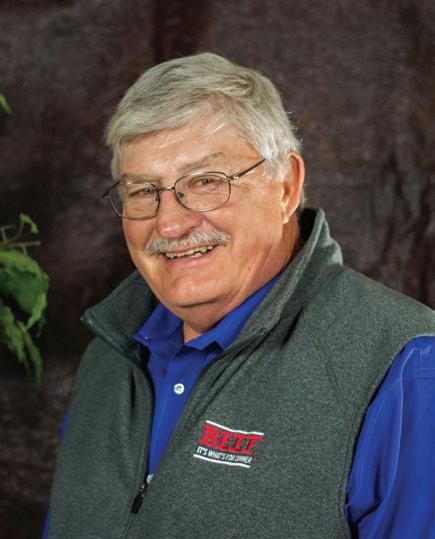

Neal Watson • District 3
131 Deline Boonshill Rd • Petersburg 37144 (931) 703-3278
Eric Law• District 4
7864 Barnhill Rd • Primm Springs 38476 (615) 642-7506 • Eric.law@mtemc.com
Jim Bledsoe • District 5
1760 Poplar Cove Rd • Jamestown 38556 (931) 265-7201 (Fentress County)
Daryl Whittaker • District 6
3357 Rock Creek Rd • Estill Springs 37330 (931) 636-1037
Dr. Bryan Beason • District 7 beasonbryan@gmail.com (423) 836-3376
Jeff Sellers • District 8
7609 Rogers Rd • Corryton 37221 (865) 382-5559 (Knox County)
Jerry Baker • District 9
3341 Cherokee Rd • Jonesborough 37659 (423) 747-7600
At Large Members
Nick Patterson • (931) 397-0847
2258 Henson Rd • Red Boiling Springs 37150
Luke Teeple • (931) 808-3786
3465 Duck Pond Rd • Sparta 38583
Gary Dering •901-355-9247
PO Box 115 • Rossville 38066
Dr. Hugh McCampbell • (423) 836-6016
407 Mayes Ave • Sweetwater 37874
Doug Dawkins • (865) 607-5880
4323 Cabbage Dr • Knoxville 37938
John Bradley • (901) 834-1034
425 Abrams Rd • Lutts 38471
Larry Church • (931) 698-5802
4077 Rippey Lake Rd • Mt Pleasant 38474
Summer Terry • (731) 608-4161
510 Cones Rd • Henderson 38340
Terry Snyder • Terry.snyder6@yahoo.com
6433 Hwy 67 W • Mountain City 37683
Director Emeritus

Wesley Parks • (901) 465-8837
17960 Hwy 76 • Somerville 38068
Frank Ingraham • (615) 794 1062
Tap Root Farm • Franklin 37064
Agribition/Seedstock Representative
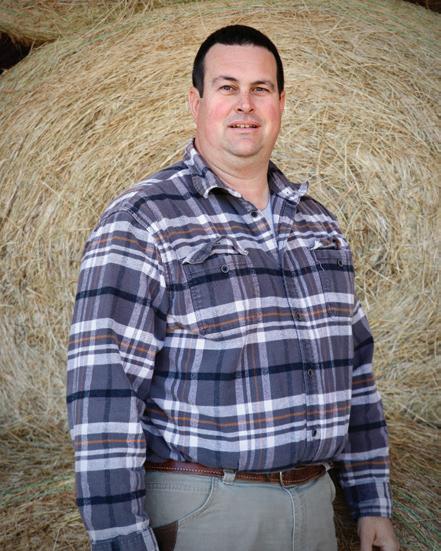
Zach Butler • (615) 308-8628 butlercreek1952@aol.com

Tennessee CattleWomen’s Association Madison Martin, president • (423) 519-9854


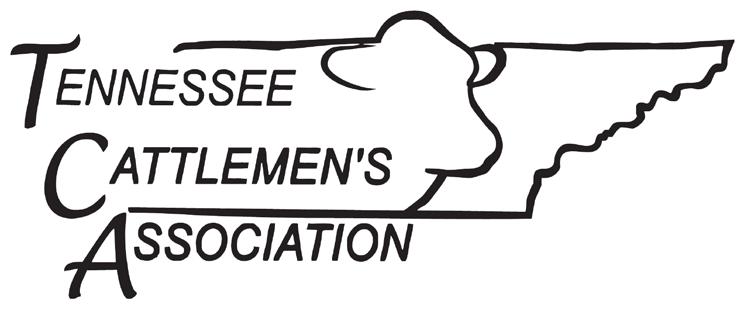
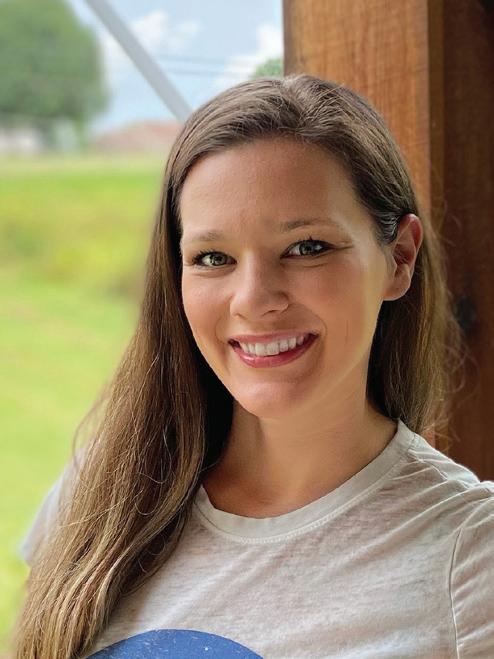

NCBA Representative
Linda Barnes • (731) 610-9210 1350 Ervin Hester Rd. Selmer
38375 Ex Officio Members Wendy Sneed - Tennessee Department of Agriculture, PO Box 40627 • Nashville 37204 Dr. Jim Neel • (865) 974 7294 Department of Animal Science, University of TN 2505 River Dr, Room 204 • Knoxville 37996 Dr. Justin Rhinehart • jrhinehart@utk.edu University of Tennessee • Extension Beef Cattle Specialist TCA 2 Staff and Leadership Charles Hord Executive Vice President Charles@tncattle.org Melinda Perkins Director of Youth Programs & Outreach Melinda@tncattle.org Lauren Neale Director of Communications Lauren@tncattle.org Roger Radel Past-President 930 Harrisburg Rd, Sevierville 865-453-4281 rhradel@hotmail.com Jay Yeargin President 3395 Hwy 54, Greenfield Yearginfarms@hotmail.com Dustin Pearson President-Elect 293 Spurgeon Gap Rd, Gray (423) 956-6178 Pearsoncattle@gmail.com Sally Wingler TCA Office Manager info@tncattle.org (615) 896-2333 www.tncattle.org Madison Martin President, TN CattleWomen 423-519-9854 tcwaexec@gmail.com

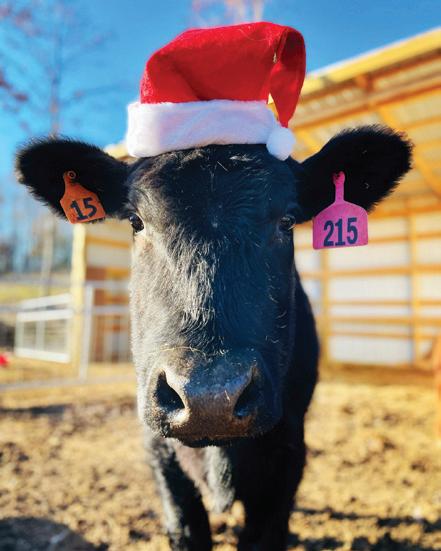

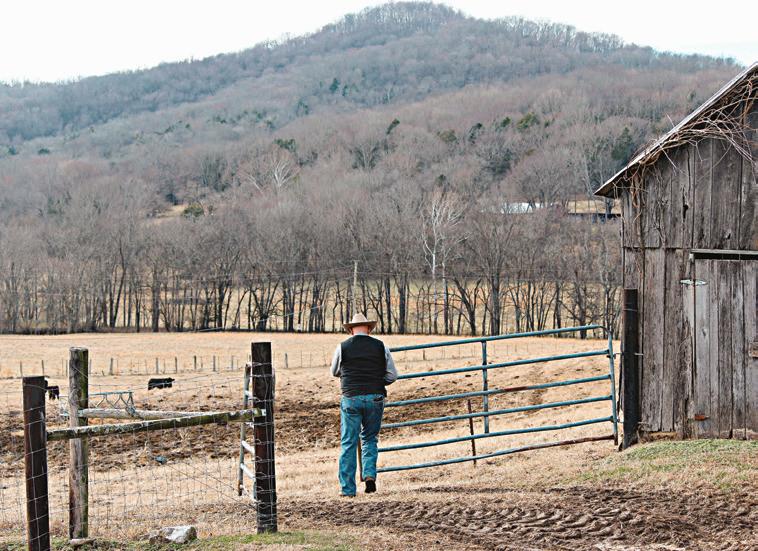
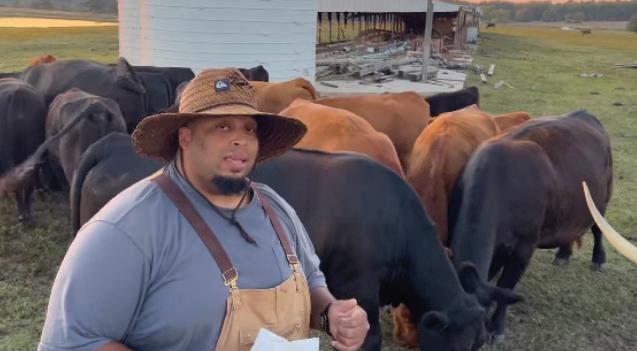
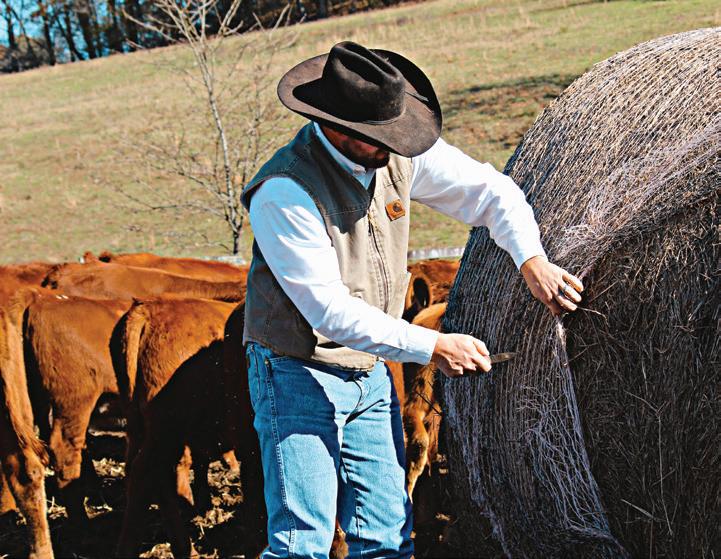
Volume 37 No. 12 - DECEMBER 2022 National Representative:
Brown 859-278-0899 cbrown@livestockadvertisingnetwork.org IN THIS ISSUE 28 FEATURE 16 Agricultural Economics:
Prices and
5 TCA’s President’s Report 6 8 ON
The Tennessee Cattle Business magazine is published monthly by the
Cattlemen’s Association. For advertising rates and membership information, visit www.tncattle.org or
3 Tennessee Cattlemen’s Association 530 Brandies Circle Suite B Murfreesboro, TN 37128
10 TCA’s 2023 Winter Meeting Agenda and Registration Form 18 Veterinary
” 17 Forage Specialist,
Beef”
Carey
Dr. Andrew P. Griffith, “Cattle
Rockets”
THE COVER: Jason Brown during his time playing for the St. Louis Rams. Photo provided.
Tennessee
call 615-896-2333. TCA’s Executive Vice President’s Report TCA’s Youth Programs Report This month, we feature Jason Brown, a fomer NFL lineman who gave up millions to farm. In this story, Brown shares his motivation, triumphs, and advice for those in agriculture. Brown will present his story more in-depth during TCA’s upcoming winter meeting. Story by Lauren Neale.
20 Beef Cattle Expert, Dr. Kate Mason: “Stretching Hay When Supplies are Tight”
Advice: Dr. Lew Stickland, ”Baxter Black’s What’s Christmas to a Cow?
Dr. Gary Bates, “Grass-Fed

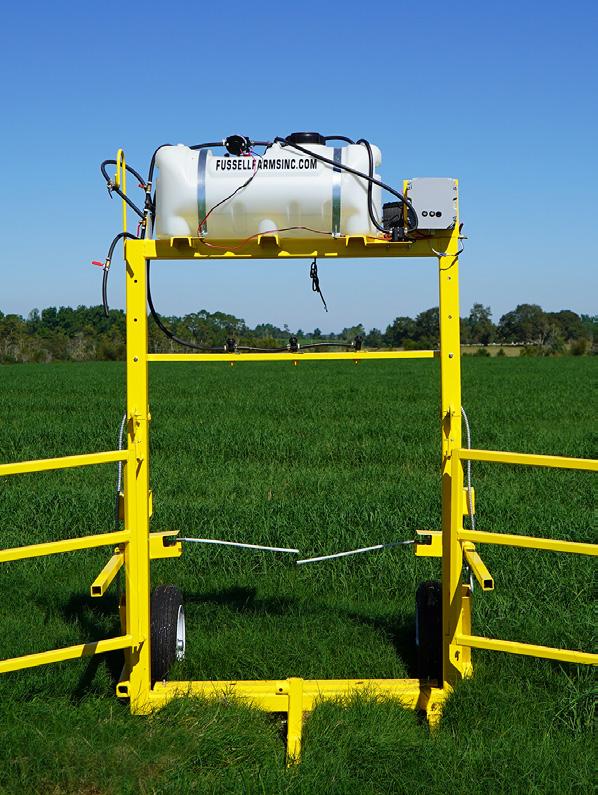
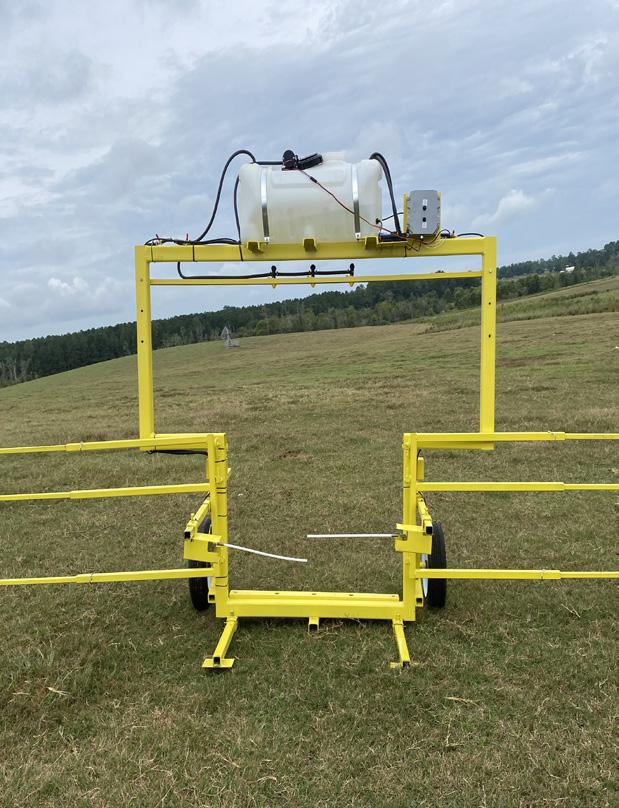
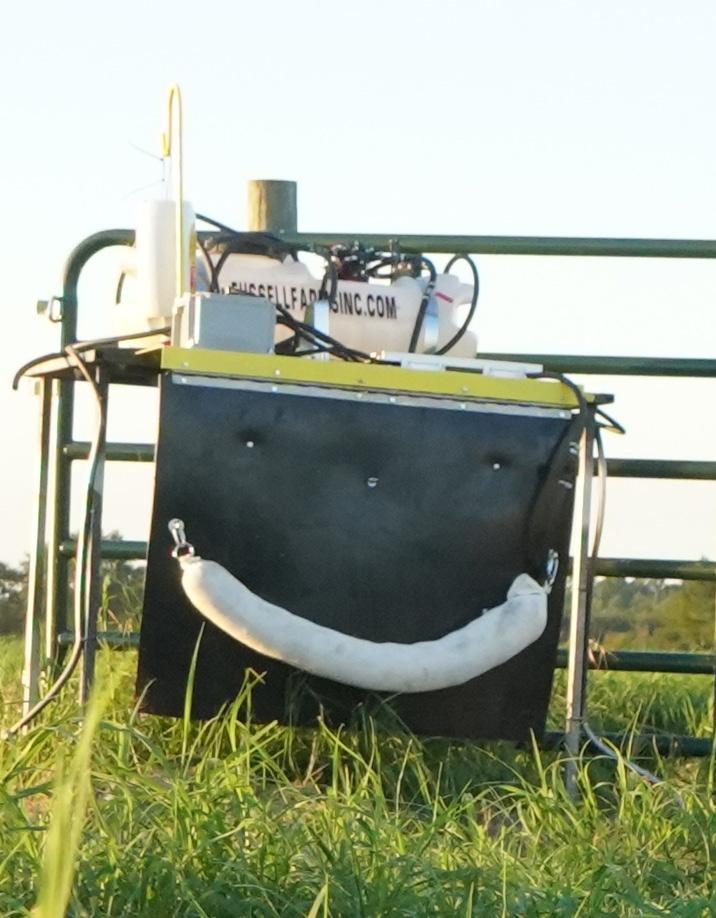
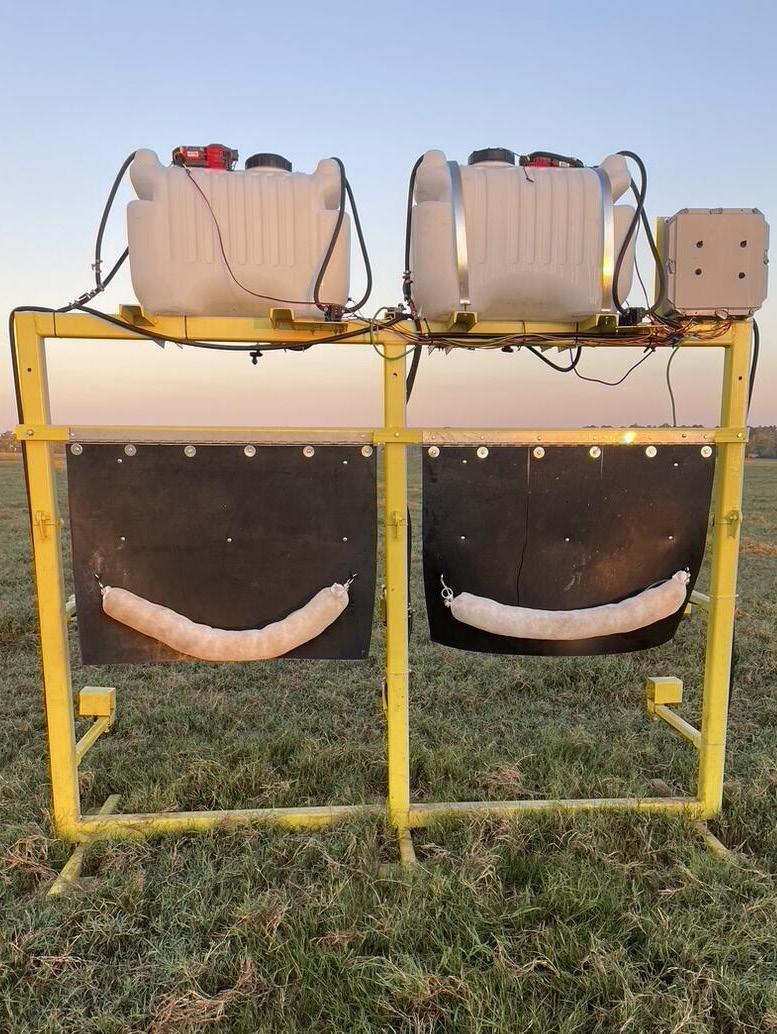

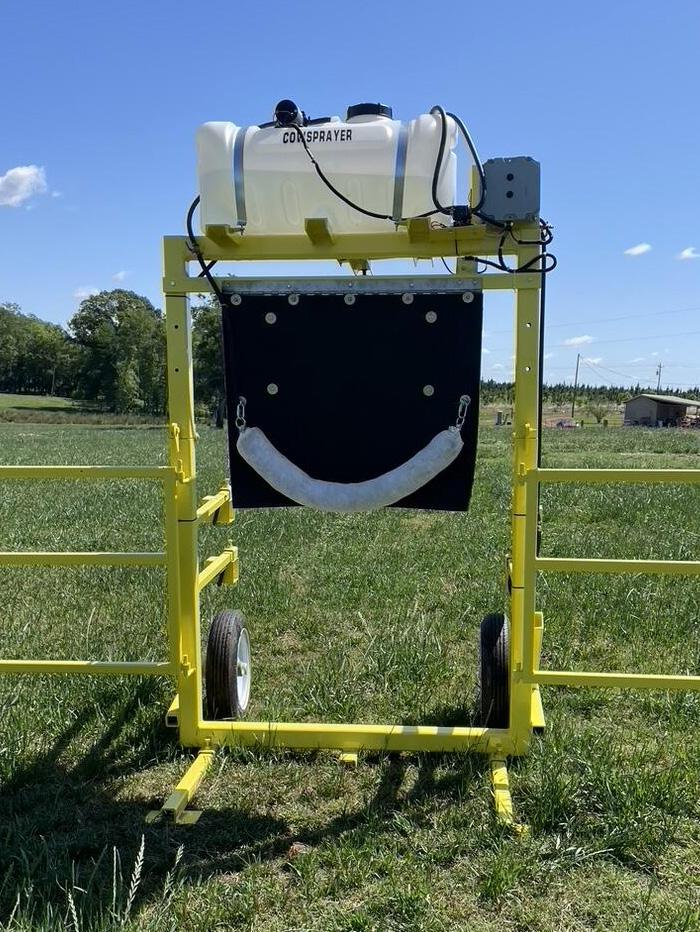
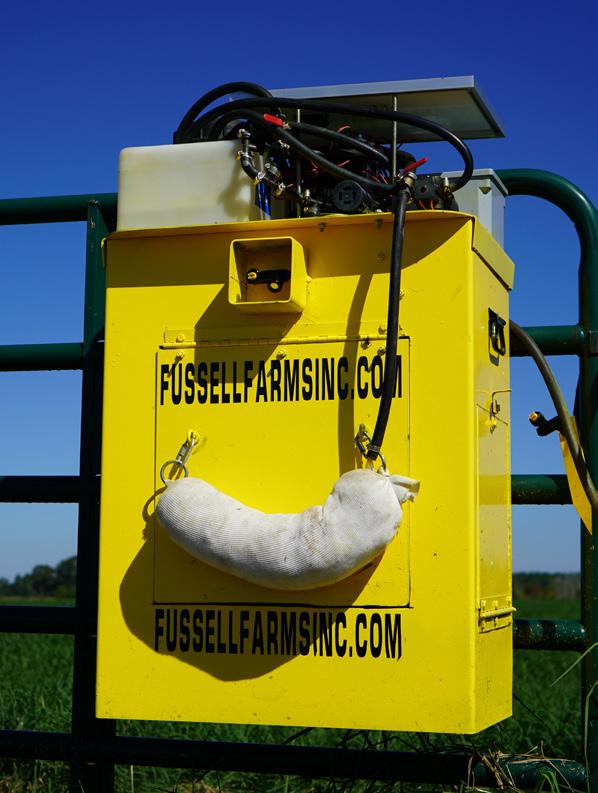
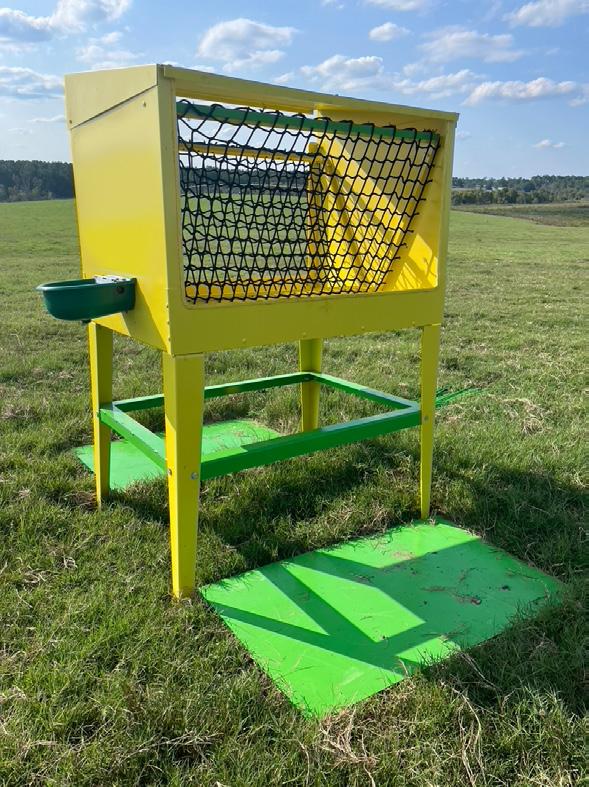

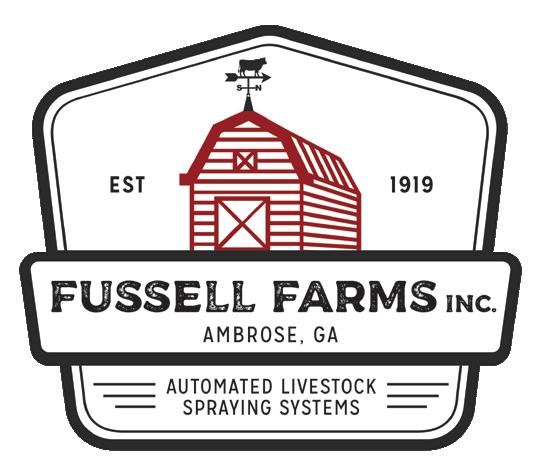
Cow SprayerTM Cow Sprayer Longhorn Edition Cow SprayeR ExpressTM Double Cow SprayeR Mineral FeederTM Portable Cow Sprayer Express Feeder ExpressTM Fussell Feeder sales@fussellfarmsinc.com | 865.388.0241 | 865.441.2765 | fussellfarmsinc.com | TAEP Eligible The Best Fly Protection for Your Herd and Your Wallet
BY JAY YEARGIN Tennessee Cattlemen’s Association’s President, Weakley County


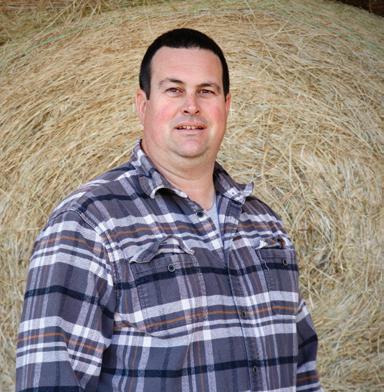
Just at my time as president of TCA draws to the end, so does this year. I love the fall on the farm, but really dislike these short days. It sure does make getting all the chores at the farm and then at home done before what seems like really late.
I don’t know how it is at your farm, but here we are still very dry. It is going to make it difficult going into winter months with very little green grass for our cows to graze. We have started putting out hay almost a month before we usually do. The dry weather has made our fall calving and setting those hay bales our much easier that in the mud. Our ponds are very low, but so far, we haven’t had to move any cattle because of the dry weather. This fall we no till drilled some wheat into the pastures so we will have something green for the cattle to graze.
The dry weather has made our fall harvest run smooth with very few rain delays. In recent weeks, there have been a few rain showers that came through and gave us enough moisture to get our winter wheat up and growing. So far, that crop is doing well. The dry weather also really hurt our corn crop, but the beans did receive some late season rain and they seem to be a fairly normal crop.
On another note, TCA had a great fall board meeting. Our committees got together, finalized some plans for the upcoming winter meeting, and made a few changes to some of our youth programs. This is the kind of collaboration I love to see from our board. It takes team work to make our board progress towards the betterment of the industry. If you or anyone you know are interested in being on our board or serving in some type of role, please reach out to us. We are always looking for great people to have on our team.
Please mark your calendar for our winter meeting and trade show in Lebanon on Jan. 2-3 (Details on this event can be found on page 10). Our staff and volunteers
have a great lineup of speakers that will be presenting at this year’s meeting. We will also have one of the best trade shows in the state with vendors from all across the US with boots that will show you products relevant to your operation. Look forward to seeing you soon!
Editor’s note: Yeagin ends his term as president at TCA’s Winter Meeting. I want to thank him for his writing contributions to TCB over these last two years.
2022 COUNTY PRESIDENTS
5 Anderson...............................................Philip Warfield Bedford...........................................................Tyler Ray Benton.................................................Scott McDaniel Bledsoe.................................................Tommy Nipper Blount............................................................Mark King Bradley.....................................................Darryl Sneed Cannon....................................................Davy Sneed Carter...............................................Greg Whitehead Cheatham..............................................David Shores Chester.............................................Thomas Winbush Claiborne....................................................Ricky West Clay.....................................................Craig Ogletree Cocke...............................................Amanda Walker Coffee- Grundy.............................Matthew McBride Cumberland...............................................Terry Lowe DeKalb.............................................................Bart Lay Dickson...................................................Stefan Logan Fayette..................................................Mark Fleming Fentress........................................................Jeff Brown Franklin...........................................Cory Dziadkowiec Gibson........................................................Justin Pope Giles..........................................................Brett McNeill Grainger..................................................James Acuff Greene...................................................Ernie Kleinlein Hamblen........................................................Bill Burgin Hardin.........................................................Ron Daniel Hawkins...................................................Jerry Lawson Henderson...................................................Nick Todd Henry.....................................................Angela Wilson Hickman....................................................David Bates Houston......................................................Sam Fussell Jackson.......................................................Tim Heady Jefferson................................................Brian Morgan Johnson....................................................Terry Snyder Knox/Union............................................Richard Neal Lawrence-Wayne...............................Marty Gambel Lauderdale............................................Lee Johnston Lewis.........................................................Kenny Ellison Lincoln..................................................Rujena Dotson Loudon............................................JoEllen Campbell Macon.........................................................Ken Roark Madison..................................................David Horton Marion....................................................Neal Ashburn Marshall......................................................Bo Jackson Maury......................................................Randy Jones McMinn..................................................Jayson Vicars McNairy...................................................Scott Roland Meigs......................................................Greg Buckner Middle Tennessee.................................Samuel Davis Monroe.....................................................David Watts Montgomery............................................Tom Barnett Moore.................................................Gordon Milsaps Morgan...........................................................Len Ross Northwest TN...........................................Mikey Pierce Overton...............................................Caleb Johnson Pickett......................................................Steven Gray Putnam............................................Howard B. Bilbrey Rhea.....................................................James Housley Roane............................................................Bob Tilley Robertson.................................................Clint Grubbs Rutherford .................................................Collin Miller Sevier......................................................John Delozier Smith....................................................Jake McCaleb Sullivan............................................Samuel Schallock Sumner..................................................Johnny Martin Tipton...........................................................Kirk Daniel Trousdale.................................................Blake Holder Unicoi.......................................................Bo Shadden Warren......................................................David Smith Washington.....................................................BJ Lewis White-VanBuren......................Monroe Mooneyham Williamson.......................................................Eric Law Wilson......................................................Clint Shipper
TCA PRESIDENT’S UPDATE
ASSOCIATION NEWS
EXECUTIVE VICE PRESIDENT’S UPDATE
BY CHARLES HORD Executive Vice President, Tennessee Cattlemen’s Association

and Forage Center and more. We meet with leaders from the University of Tennessee Institute of Agriculture, the Tennessee Dept. of Agriculture, state and federally elected officials on cattle producer's behalf.
• TCA staff and producer leadership travel to Washington DC yearly and coordinates with the National Cattlemen’s Beef Association to lobby on behalf of cattle producers.
• TCA discusses issues like Avian Predators and other wildlife issues with the Department of the Interior and Fish and Wildlife Service. We discuss issues like foreign trade and beef exports, regulations and labeling requirements for plant based and cell cultured substitute meat products, environmental regulations, trucking mandates and water regulations and proposals like the Green New Deal.
• TCA represents producers in Nashville on the Capital regarding issues important to Tennessee producers. TCA participates in the Agriculture Day on the Hill where we fed brisket to the General Assembly. Our Board of Directors visit with our elected officials. We also regularly monitor and House and Senate Agricultural Committees for issues related to cattle production and farming.
I hope to see each of you at our TCA Winter Meeting January 2-3 in Lebanon. The opportunity to hear from folks like Dr. Temple Grandin, Trent Loos, Jason Brown does not happen every day. There will be a large trade show and other events and speakers. Registration information is in this issue and online at tncattle.org.
I have heard from several livestock markets across the state about the number of mature cows going to market and the number of producers that have made the decision to exit the business. The American Farmland Trust estimates Tennessee is the fourth worst state in terms of land transitioning from farmland to development across the US. Producers are also selling out in the western states and down into Texas due to long term drought. Economists are predicting similar market conditions in 2023 to 2014, when cattle prices reached alltime highs. Supplies will be tight for several years once the drought breaks, and farmers start rebuilding their herds.
I am sometimes asked what producers get when joining TCA besides the magazine. So below is a list of events and activities TCA has engaged in recently on behalf of our members.
• TCA sits on numerous boards on behalf of cattle producers including the Tn Dept of Agriculture Supply Chain Task Force, The Chord Animal Health Advisory Committee, the TAEP Cattle Genetics Advisory Committee, the Tennessee Beef Industry Council, the Farm Animal Care Coalition of Tennessee, The UT Beef
• TCA donated over $40,000 to support youth activities in the state last year including sponsoring the Tn. State Fair Steer Show, Agribition, county livestock shows, Ag in the Classroom, 4-H and FFA activities, five college scholarships for outstanding youth interested in studying agriculture, three heifer scholarships, show premiums for youth participating in cattle shows and other sponsorships.
• TCA has coordinated the Second Harvest Beef Expo Initiative which has resulted in over 20,000 lbs of beef being donated to needy families over the last 10 years.
Thanks for being a member of TCA. Follow us on social media: @tennesseecattle.
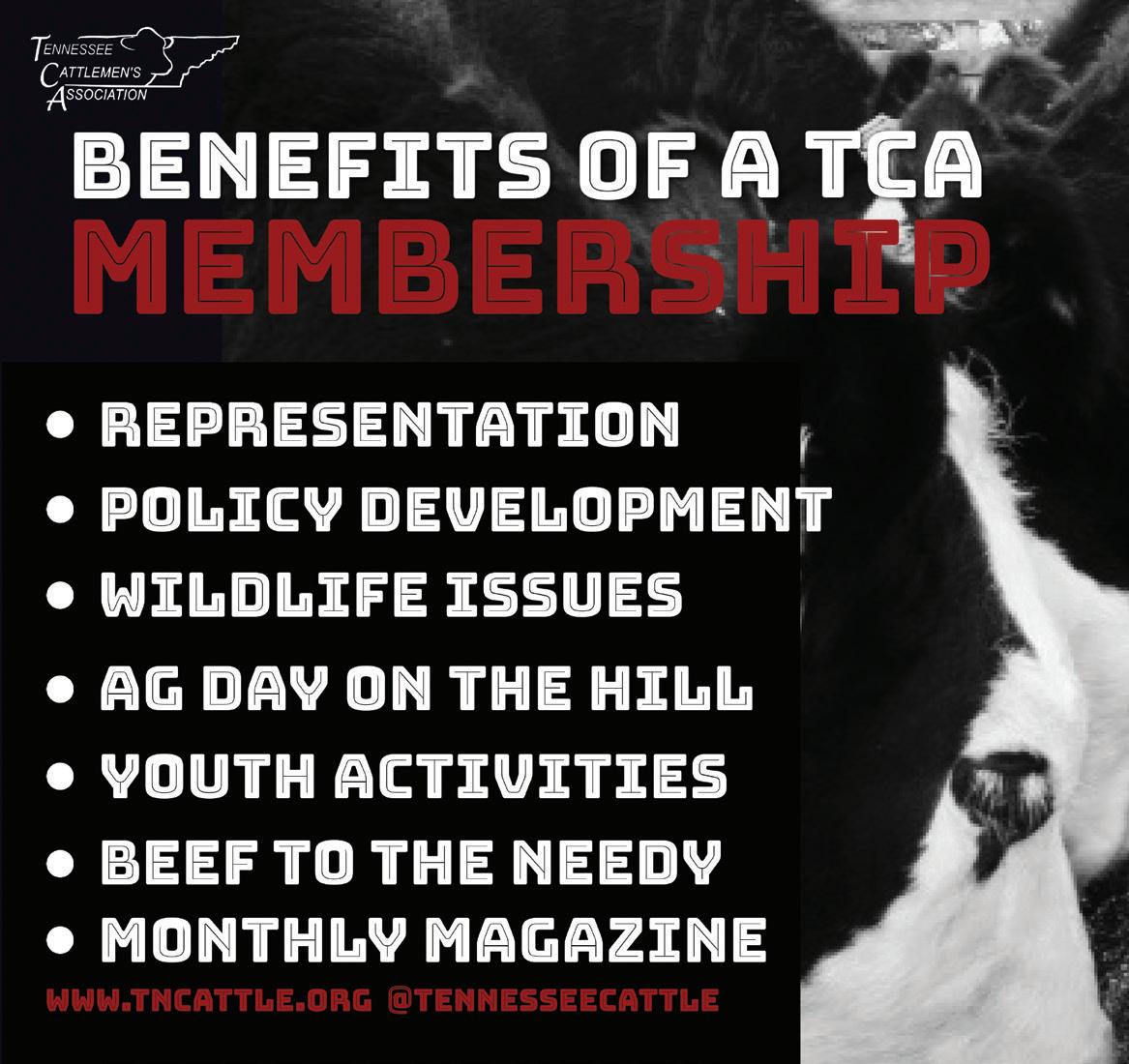
6
ASSOCIATION NEWS
WAGYU JAPANESE GENETICS HAZEL GREEN, ALABAMA FRANKEWING, TENNESSEE Tommy & Clarice Ragland 256-714-6182 RaglandWagyu@gmail.com Polled and Black Wagyu Bred cows, Heifers, Bulls, and Embryos

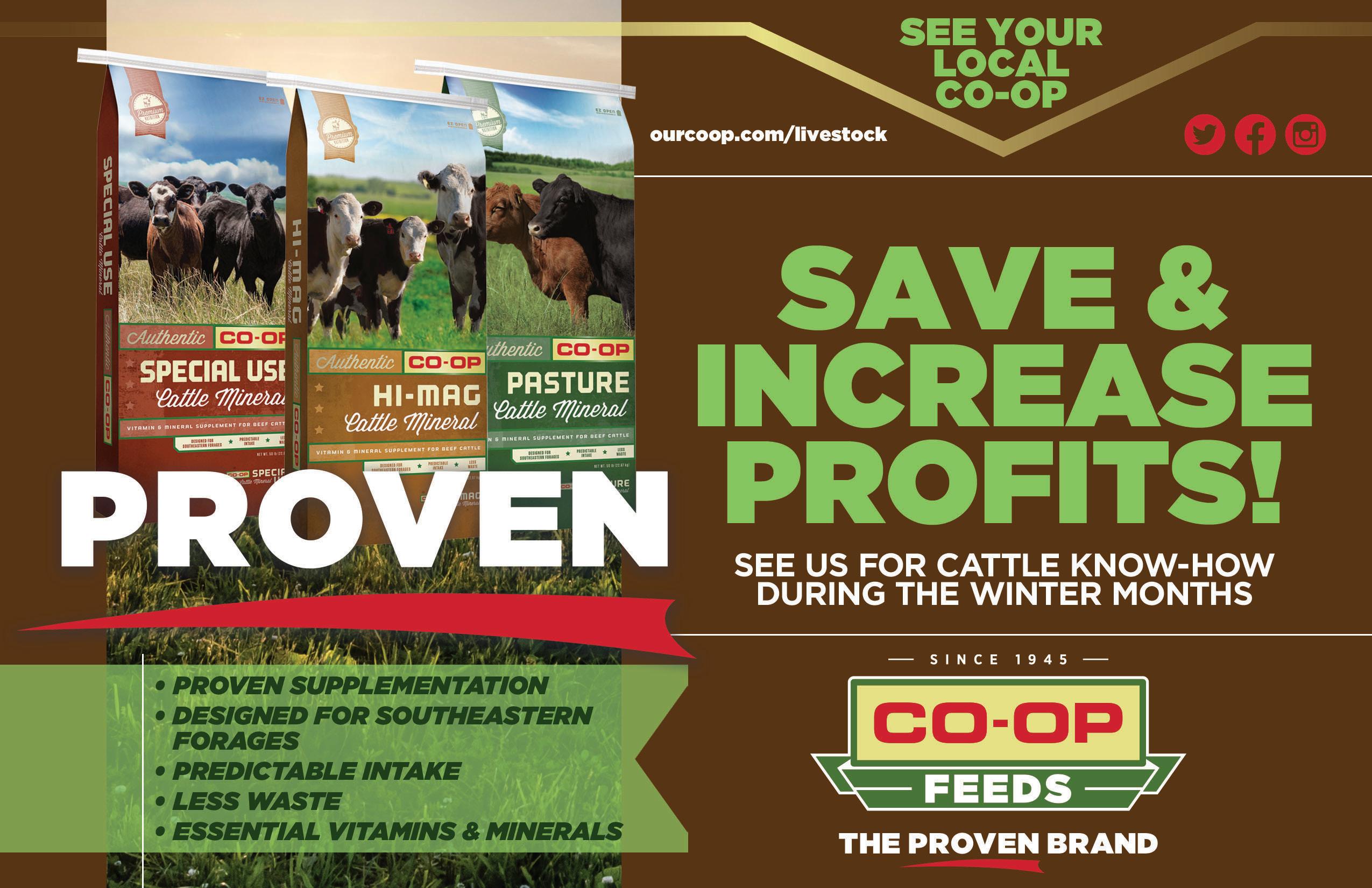
THE MOST WONDERFUL
TIME OF THE YEAR
BY MELINDA PERKINS TCA’s Director of Youth Programs & Outreach
It’s hard to believe this is the final issue of the Tennessee Cattle Business magazine for 2022. Soon after you receive this issue, schools will be out for winter break and it will be time for holiday parties, family Christmas gatherings, and ringing in the new year. It truly is “the most wonderful time of the year” in many ways.
Amid all the holiday excitement, there have also been several other exciting happenings for the Tennessee Cattlemen’s Youth Association. Earlier this month, we received an abundance of applications for the TCA/FCMA Youth Beef Heifer Initiative, TCA Outstanding Youth Award, and 2023 Youth Ambassadors. It is always rewarding to see the talents and accomplishments of our youth members shine through their award applications. It always makes it challenging for the selection committees!

On December 3rd, the Tennessee’s Top Tier sponsored by Merck Animal Health program kicked off another year with the UTK Rocky Top Classic cattle show. There are several new participants this year and we are anxious to see how the Tennessee’s Top Tier program continues to grow in its sixth year!
After the excitement settles from the holidays, it will be time for the Tennessee Cattlemen’s Association’s Winter Meeting, which will be held January 2-3, 2023, at the Farm Bureau Exposition Center in Lebanon. With the Winter Meeting being held in a new location and right after the new year, the theme for this event will be “New Year, New Ideas.” In addition to the quality line-up of speakers planned for the main convention sessions (like Trent Loos pictured here), there are also several speakers, workshops, and activities planned specifically for the youth attendees. I encourage you to visit the youth page on our website at www.tncattle.org/youth, and “Like” the Tennessee Cattlemen’s Youth Association page on Facebook to stay up to date on all the youth things happening at convention!
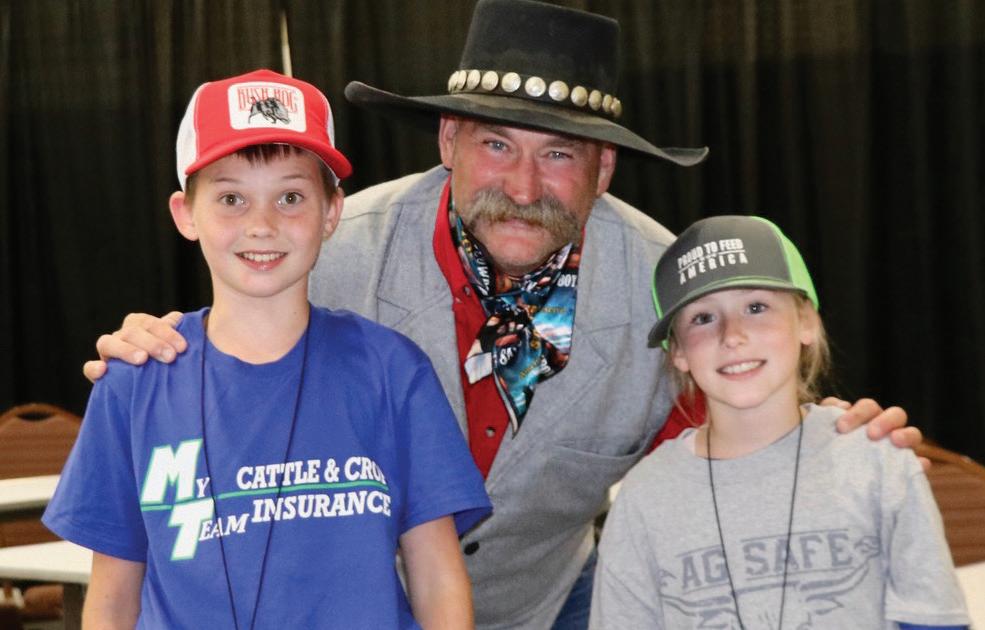
The Christmas season truly is “the most wonderful time of the year.” However, the happenings and opportunities available through the Tennessee Cattlemen’s Youth Association, make it even better. May God bless you all during this holiday season and bring you a rich and prosperous new year.
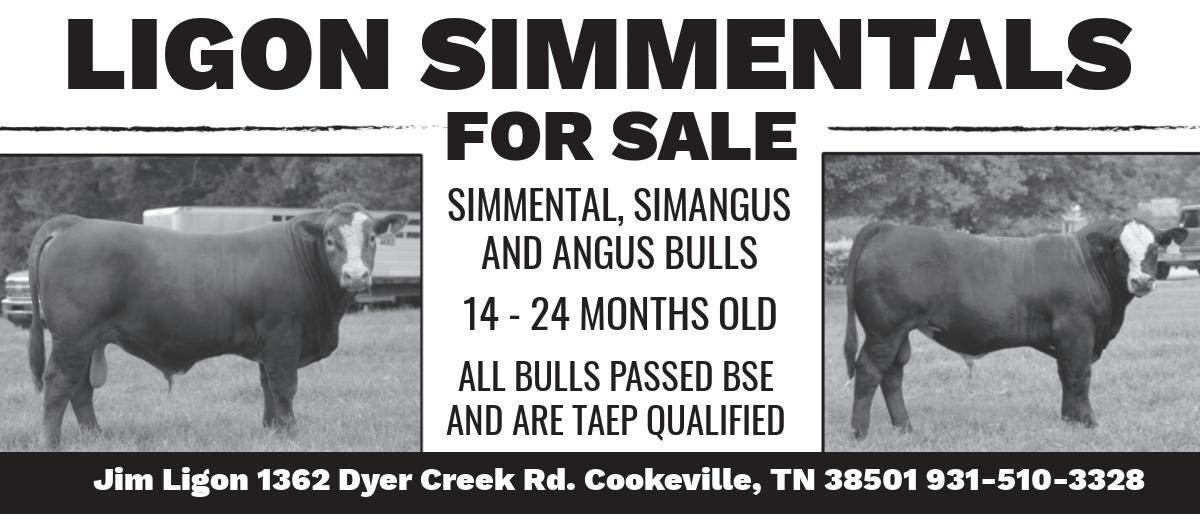
YOUTH NEWS 8
“It's the most wonderful time of the year With the kids jingle belling And everyone telling you be of good cheer It's the most wonderful time of the year…”


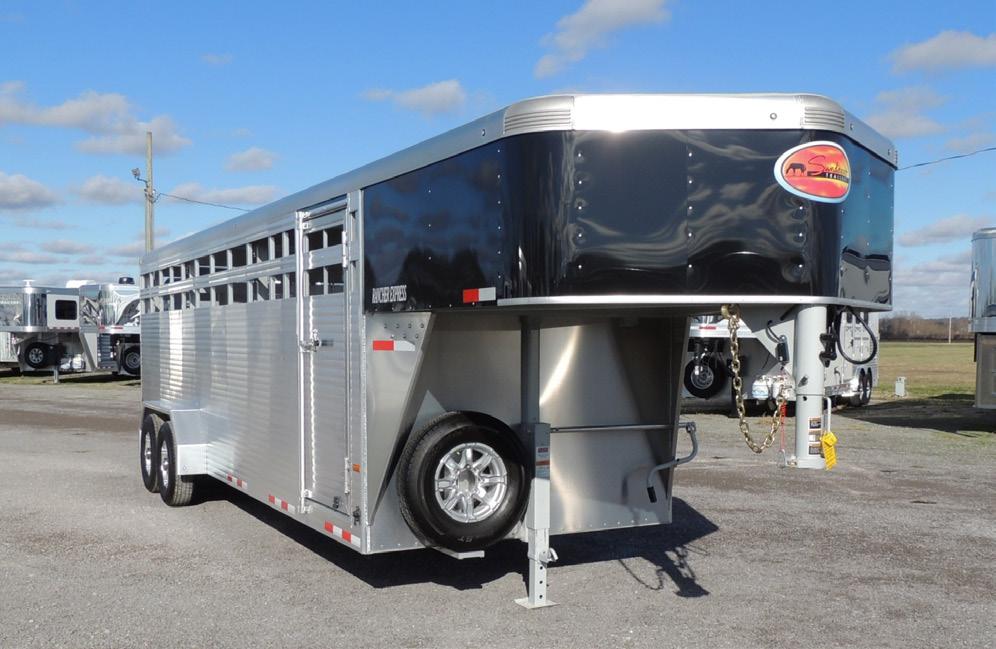
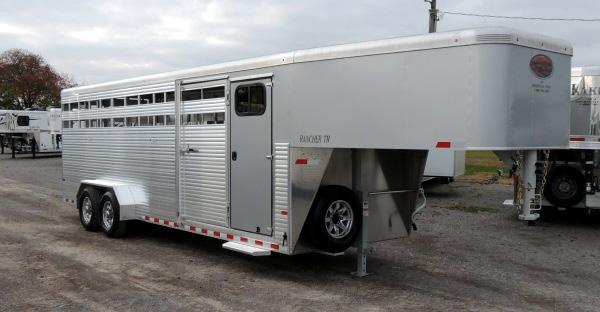

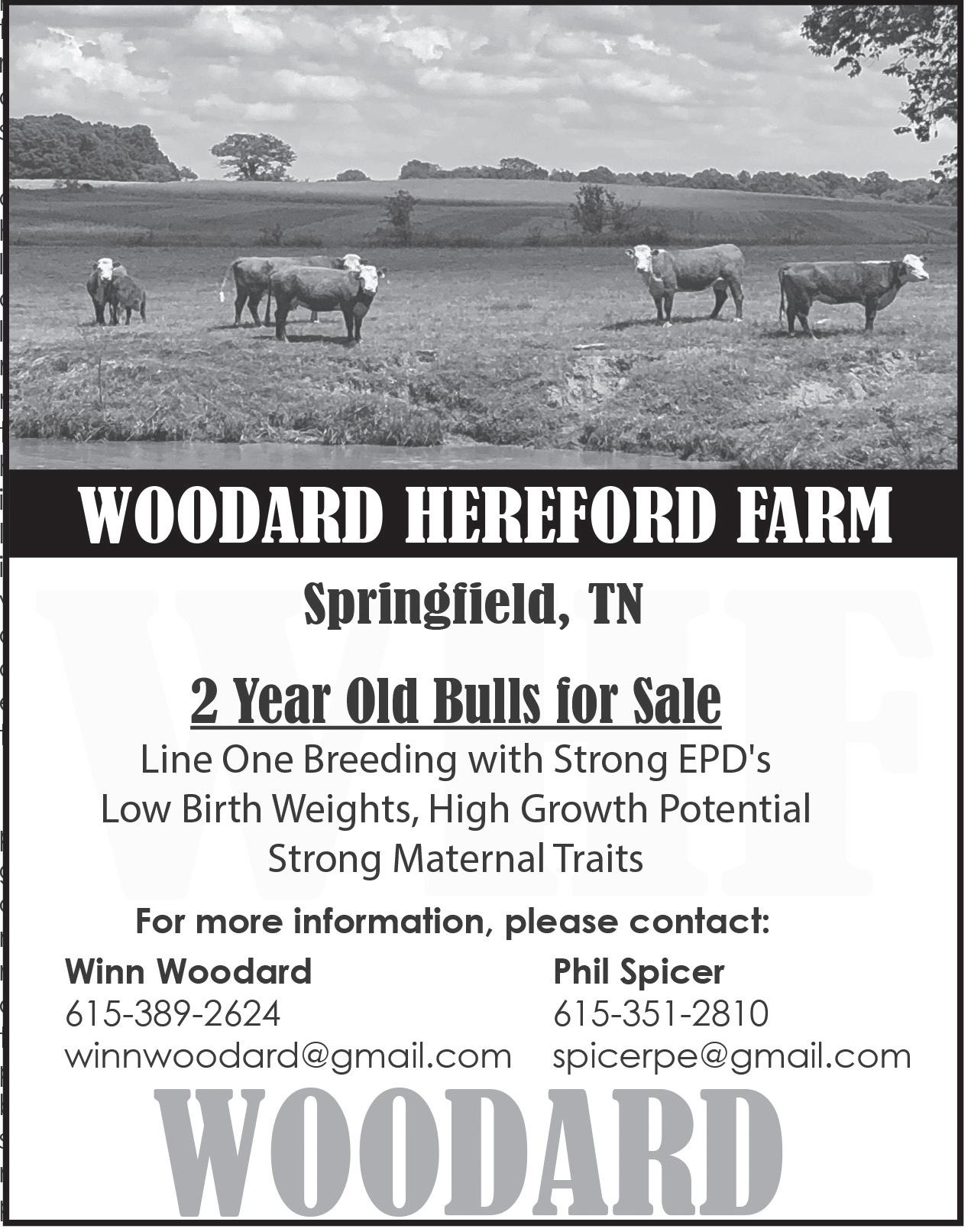
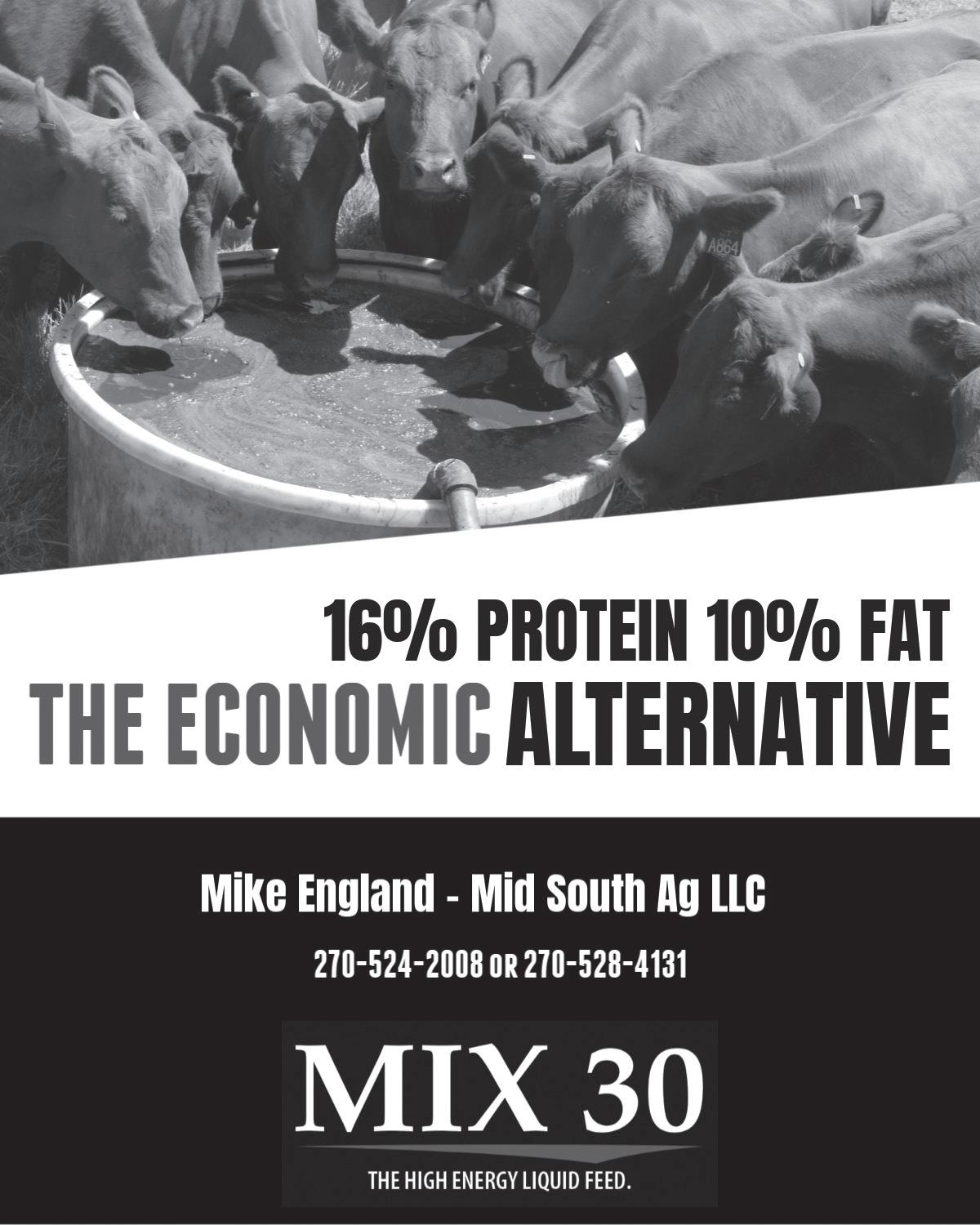
The best value aluminum stock trailer on the market! Multiple sizes on Hand! “Located beneath the BIG American Flag” on Hwy 231 betweeen Murfreesboro & Shelbyville, TN. Come by for the latest selection, or check our website! SelectTrailer.com or 931.685.4040! 3181 US 231 North Shelbyville, TN 37160

YOUTH REGISTRATION

Mon.

Monday registration only ____ x $10 = $ ____ Mon. reg. + lunch ____ x $30 = $ ____

Tuesday registration only ____ x $10 = $ ____ Tues. reg. + lunch ____ x $20 = $
Holiday Inn Express & Suites, Lebanon, TN (ph: 615994-3225) is offering discounted rate of $119.00/night. Mention TCA when you are making your reservations.
Fairfield Inn and Suites by Marriott, Lebanon, TN (ph: 615-470-2224) is
a discounted rate of $149.00/night. Book online using code “TCAN”, or call.
111 Mail Check and Completed Form to: Tennessee Cattlemen’s Association 530 Brandies Circle Suite B Murfreesboro, TN 37128 or call (615) 896-2333 to register You can download this form at www.tncattle.org
CREDIT CARD PAYMENT Circle One: Visa Master Card Discover American Express Name on card: Card #: Exp. Date: 3-Digit Security Code: Zip Code: Email for receipt: ATTENDEE INFORMATION Name(s) of all attendees: 1) 2) 3) Address: City: State: Zip: County: Phone Number: Email: Registration only (no lunches) ____ x $30 = $____ Registration + Lunches ____ x $75 = $ ____ MONDAY ONLY Registration only (no lunch) ____ x $20 = $____ Registration + Lunch ____ x $40 = $ ____ TUESDAY ONLY Registration only (no lunch) ____ x $15 = $____ Registration + Lunch ____ x $35 = $ ____ Featuring Randall Reeder as Will Rogers Ribeye steak dinner with all the fixens ____ x $45 = $ ____
offering
& Tues. registration only ____ x $20 = $____ Mon. & Tues. reg. + lunches ____ x $70 = $ ____
If you are attending with a group for the Quiz Bowl, you are to register with UT Youth Livestock Specialist, Aaron Fisher Tennessee Cattlemen’s Association’s Winter Meeting January 2-3, 2023 • Farm Bureau Exposition Center • Lebanon, TN Pre-Registration Form - Pre-Registration ends December 19, 2022 Registration includes access to speaker sessions and the trade show. Children under 5 are free. HOTEL INFORMATION
____ Please note:
YOUTH AGENDA
Tennessee Cattlemen’s Association Winter Meeting • January 2-3, 2023 Farm Bureau Exposition Center • Lebanon, Tennessee
Monday, January 2, 2023
11:15 a.m. Youth Scavenger Hunt + County Chase Opens (winners drawn at 10:15 a.m. on Tuesday) 1:30- 3:30 p.m. Tennessee CattleWomen’s Youth Public Speaking Contest
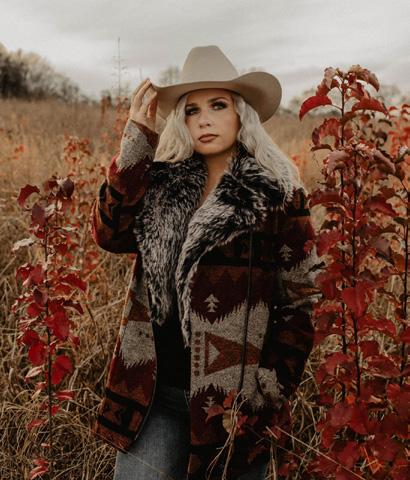

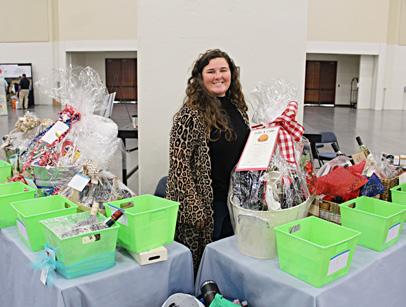
Tuesday, January 3, 2023
8:30- 9:30 a.m. Hereford Homeroom, Libby Rushton, NJHA Communications Chair 9:00 a.m.- Noon 4-H Livestock Quiz Bowl; Contact: Aaron Fisher, UT Extension 9:30- 10:15 a.m. Purina Honor Show Chow Nutrition Presentation, Alyssa Clements, Purina Mills, LLC Livestock Production Specialist and Ag1 Coop 10:15 a.m. Scavenger Hunt + County Chase Winners Drawn 10:30- 11:30 a.m. Leadership Workshop, Tennessee FFA State Officer Team
For more information on the Youth Scavenger Hunt + County Chase, Tennessee CattleWomen’s Youth Public Speaking Contest, 4-H Livestock Quiz Bowl, and TCYA Youth Photography Contest visit www.tncattle.org!
Check out the discounted registration rates for youth attendees!
All youth activties will take place in the South Hall.
Monday, January 2, 2023



12
Tennessee Cattlemen’s Association Winter Meeting • January 2-3, 2023 Farm Bureau Exposition Center • Lebanon, Tennessee CATTLEWOMEN’S AGENDA
1:30- 3:30 p.m. Tennessee CattleWomen’s Youth Public Speaking Contest, South Hall 4:15- 5:15 p.m. Tennessee CattleWomen’s Social Hour, South Hall Light hors d’oeuvers + Networking Welcome + Introductions by TCW Board Stephanie Nash, Country Music Singer + Agriculture Advocate Be sure to participate in our raffle fundraiser! Gift baskets full of great prizes donated by generous cattlemen and women will be raffled off during the TCA Winter Meeting! All proceeds go to support the TCW scholarship, youth public speaking contest, and outreach efforts!
Stephanie Nash is a fourth-generation dairy farmer and country music singer from middle Tennessee. Stephanie has combined her passion for agriculture and country music talents to not only tell her story but also the story of the agriculture industry. It’s wild rag season in Tennessee! The Tennessee CattleWomen’s Association is proud to debut our newest logo-item. Purchase your TCW wild rag online today at www.tncattle.org/shop! Stop by the TCW booth in the trade show during the TCA Winter Meeting wearing your TCW wild rag to be entered to win a TCW prize-pack!
Author, Icon to Speak at TCA’s Winter Meeting
by Lauren Neale, Director of Communications for TCA Reprinted from TCB - May 2021
“My mind sees in pictures,” said Dr. Temple Grandin. “While I am talking to you, I’m seeing cattle go through the chute in our experiment station right now.”
Dr. Grandin has innovated the cattle handling industry in the last few decades and has become one of the biggest advocates for autism, a disorder she has. Autism is a spectrum disorder causing symptoms like lack of speech, lack

of social interaction, a fascination with a particular object or subject, specific sensory needs, and more. Dr. Grandin did not speak until she was three and a half years old. She was interested in all things that could fly like kites or planes. Later, that fascination grew into horses. Since human interaction was often challenging, she found comfort with animals. Having an interest in mechanics and animal behavior led her to develop livestock equipment that paved the way for safe and effective handling around the world.
Dr. Grandin explained that “cattle are affected by what they see so that helped me” to develop handling systems from their point of view. Her equipment is used by almost every major meat company and half of the cattle that go to a meatpacking plant in the United States go through her Center Track Restrainer System that she designed. BEEF Magazine labeled her innovations as a “work of art.” She is a go-to expert on things like proper set up of chutes, loading docks, alleyways, corral, and stockyards, as well as topics like humane slaughter, stress and meat quality, restraining systems, ritual slaughter, animal welfare and rights, and more. She also invented a “hug machine” that would apply full-body pressure to a person, relieving them of anxiety, much like a squeeze chute would an animal.
The 75-year-old has written several books over her lifetime on the topics of autism and animal behavior like, “The Autistic Brain: Helping Different Kinds of Minds Succeed,” “The Outdoor Scientist: The Wonder of Observing the Natural World,” “Thinking in Pictures: My Life with Autism,” “Temple Grandin’s Guide to Working with Farm Animals: Safe, Humane Livestock Practices for the Small Farm.” Her story hit
the red carpet when in 2010 HBO produced the film called “Temple Grandin” starring Claire Danes. The actress won a Golden Globe for her role depicting Dr. Grandin’s life story.
Currently, Dr. Grandin is a professor at CSU and is featured on many media programs to talk about autism. She often encourages parents of kids on the spectrum, as well as parents of neurotypical children, to value education, try new things, and teach in a way that is best for the child to understand.
Dr. Grandin will speak at TCA’s upcoming winter meeting on Jan. 2 beginning at 10:15 in Lebanon. To register, see page 11 in this magazine or visit www.tncattle.org/shop.
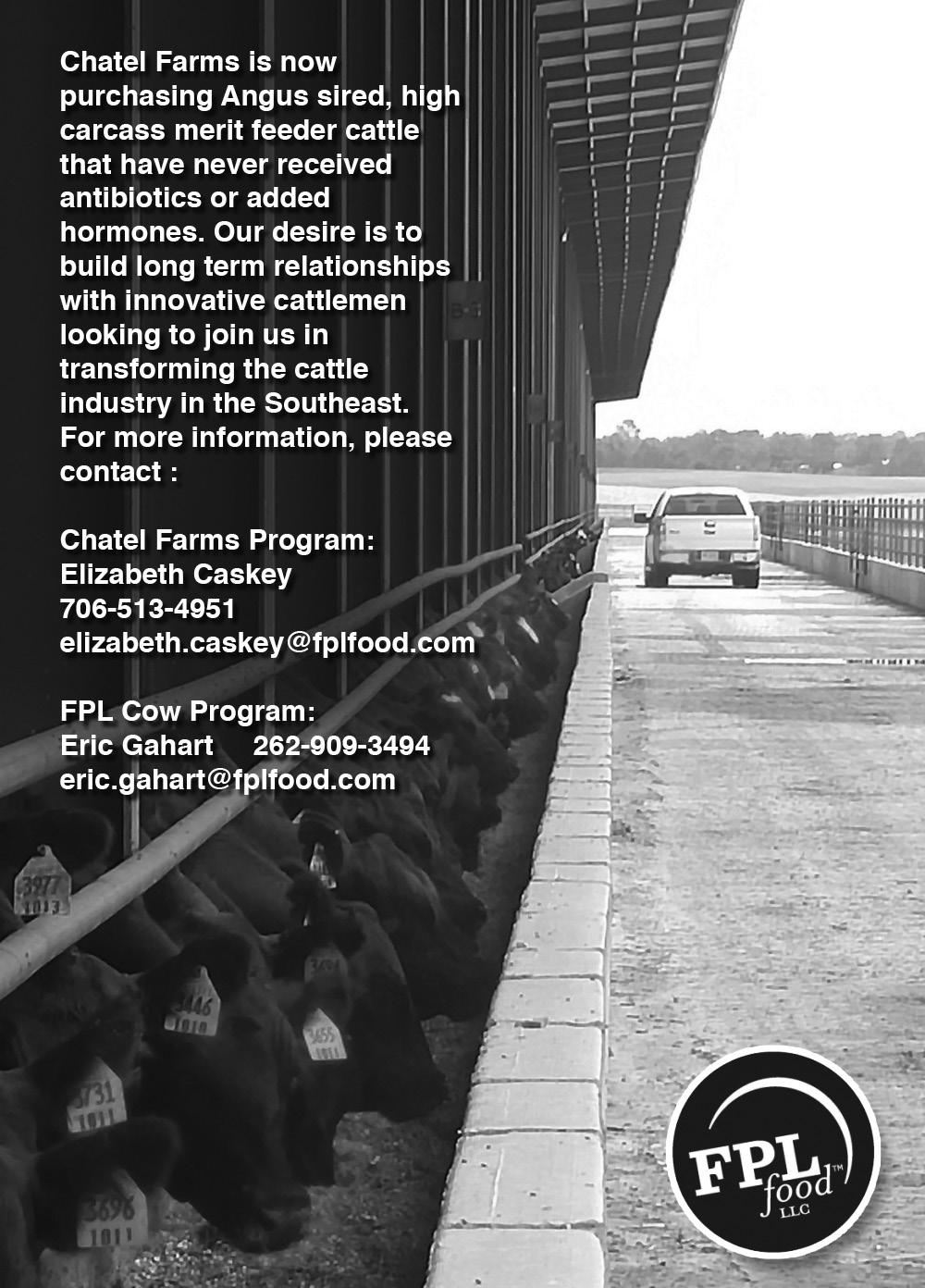
13
CONVENTION NEWS
REGENERATIVE AGRICULTURE DEFINED
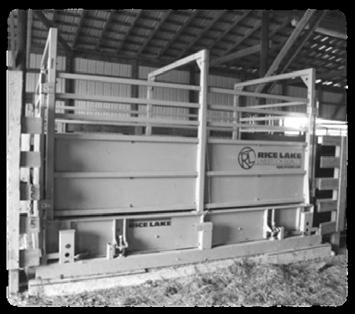
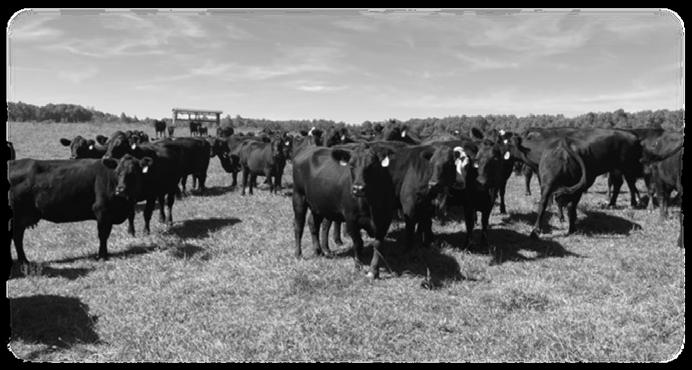
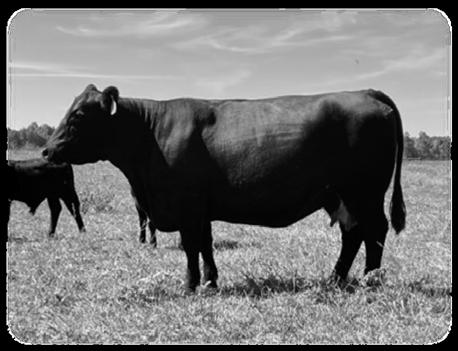

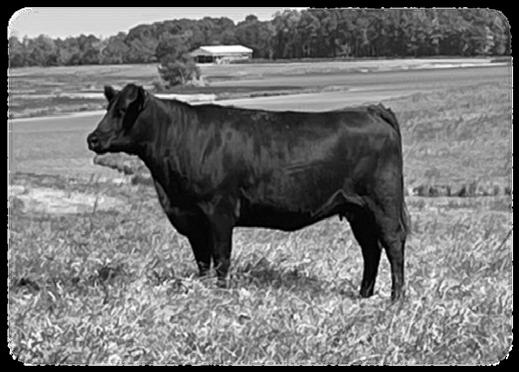
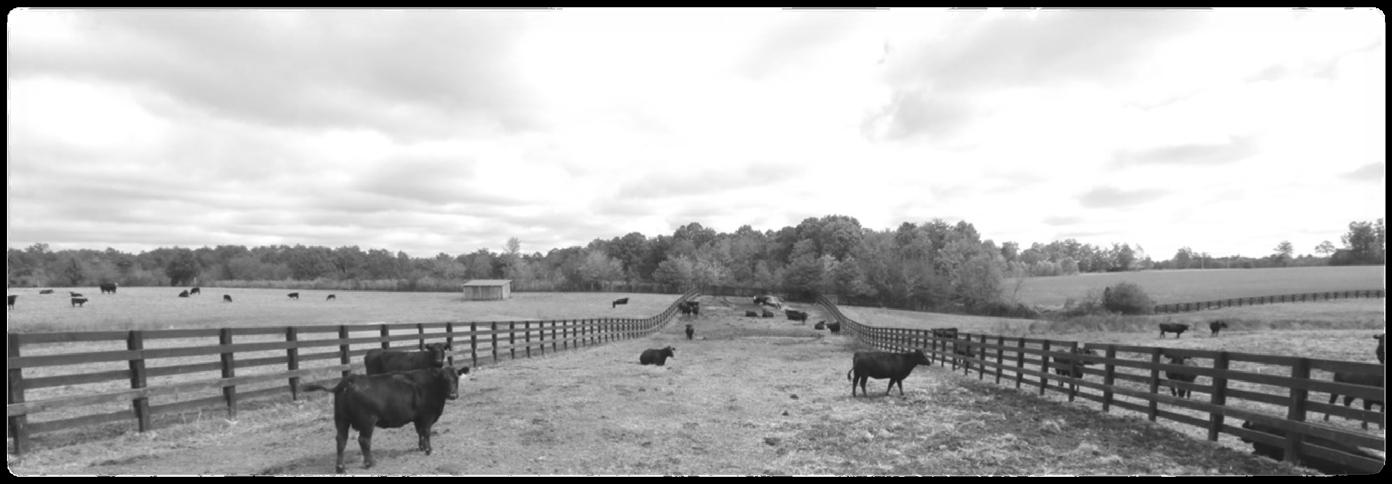 BY DENNIS FENNEWALD, PhD School of Agriculture, Tennessee Tech University
BY DENNIS FENNEWALD, PhD School of Agriculture, Tennessee Tech University

The popular term “Regenerative Agriculture” (RA) was actually coined back in the 1980’s. RA “refers to agricultural practices that regenerate soils, natural resources, landscapes and ecosystems.” In the simplest terms, I would describe RA as improving soil health, which over time should build organic matter in the soil. It is ultimately putting carbon in the ground. It is important to understand the soil carbon is always being used so it cycles throughout the year as it moves in and out of the soil. But over the years, we want to see OM increase.
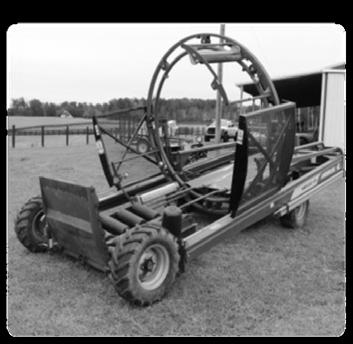
I think there are two key points as to why RA is attractive to producers. The first is that, in contrast to “organic agriculture”, all tools are still on the table. For example, if the best strategy is to use herbicides to spray some weeds, so be it. But if you just spray the weeds, you will probably always have weeds to spray. Change the management so they don’t come back. “I’m looking at you, Buttercup”!
The other key point is that there is potential to build soil OM. This is beyond sustainable agriculture. It is recognizing that the producer has the power to not just sustain the soil, but to actually make it better.
The Value of Soils

A rough view of soils is that it is 25% water, 25% air, 45% parent material (sand, silt, clay etc.) and 5% OM. Small organic molecules stick to clay particles. These grow like snowballs and soil aggregates are formed. Soil aggregates have large pores which allow water to enter the soil profile. The small pores hold the water tight enough to keep it around but loose enough for plant roots to take it up.
Soil aggregation acts as a sponge to control flooding. It cleans the water that filters through it. Some researchers claim a 1% increase in OM can absorb an additional 10,000 to 20,000 gallons of water per acre. Estimates are different depending on soil type.
And OM is the home to a great amount of biodiversity, which in many respects we have only just begun to understand. The more we know, the more we can leverage.
The Vision
A soil test might show the soils are 2% OM, but there are farms in the area that are 4%.
The land manager could implement practices that will increase OM over time. We know soils improve greatly in the first 2 to 5 years, and let’s assume that OM can increase from 2% to 4% in 7 to 10 years. But wait, is this the limitation? I don’t know but just because the best farms have 4% doesn’t mean they can’t be even better on some parts of the farm. Let’s see if those soils could go to 5% or more. Yes, that is difficult in the South where we don’t have a good freeze, but let’s see what is possible.
What practices build soil health
The short answer is the Soil Health Principles can start you in the right direction. The Soil Health Principles include 1) armor on the soil, 2) minimize soil disturbance, 3) plant diversity, 4) continuous living root, and 5) integration of livestock. Some producers have greatly decreased fertilizer, fuel and chemical use following these principles.


14
AGRICULTURE INDUSTRY
14 620 MAXWELL ST COOKEVILLE, TN 38501 (931) 526 2307 For Breeding Details: See the Website
Indications of good soil health
Some of the indications of improving soil health will include moderate soil temperatures. Bare soil on a summer day can get pretty hot! Lack of water pooling and no water running off the field after a rain would indicate excellent water infiltration. Clear water running off the field would mean little to no erosion. In fact, maybe more than anything, the water quality leaving the field or farm is probably the best sign that soil health is improving.
Building Soil in Crop Land

Most soils were plowed in the 1960’s but innovations in weed control and no-till reduce the level of tillage starting in the 1970’s. While we have made some progress there is still much to do. The rainfall simulator provides an excellent visual as evidence.
The next step might be cover crops, compost, etc. Ultimately, as stated in the Soil Health Principles, livestock should be integrated, which will provide the best results.
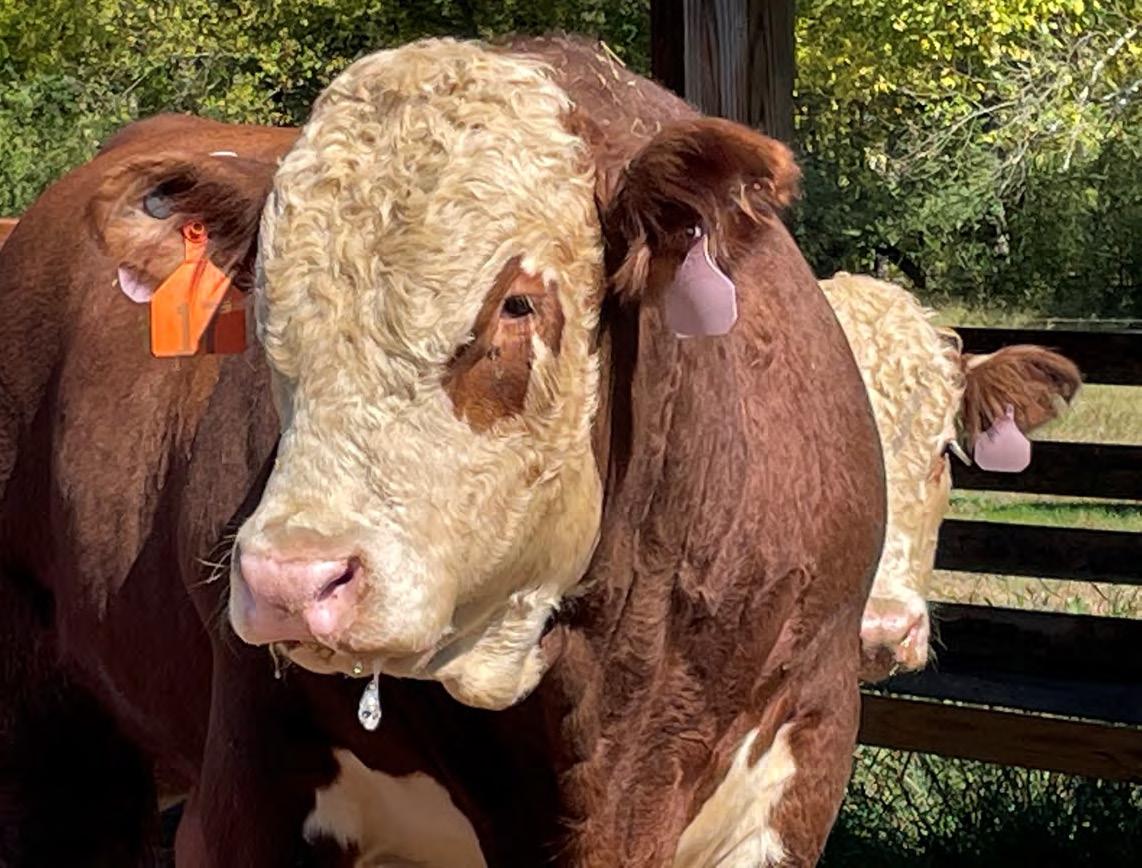
The point is that each step should reduce erosion and put more carbon in the soil. It is important to evaluate each method economically, but remember, when the soil is gone, it is gone. Building back soil does not come overnight.
Building Soil in Pastures
Follow the Soil Health Principles. Apply Boom and Bust grazing for the fastest improvement. Quit selective grazing. Add supplementation if it makes sense. Aim for year-round grazing and the farm will be (close to) drought proof. The changes in 2 to 5 years will be dramatic.
Make your life easier and reduce the number of herds. The cow is the “combine”. The fence is the steering wheel, gas and brake. Having several small herds reduces the power of your combine. In addition, the bigger the combine, the more impact you can have, especially on undesirable weeds. The cows don’t
have to eat them but can knock them down and trample them. The trampled forage and weeds become mulch to hold moisture in the soil. There is better manure distribution and forage utilization. Cows Save the Planet is not just a catchy title to a book.
Legacy
This may be big talk, but considering the importance of soil, wouldn’t it be pretty cool if Tennessee was the leader in soil restoration? With our high humidity and warm climate, the ability to grow biomass and soil health is within our reach. Imagine building that “sponge” that holds the water. Imagine agriculture that can withstand the shock of war and drought! Let’s show the US that we are the best in land stewardship!
UNIVERSITY OF TENNESSEE

15
INDUSTRY
THE
AGRICULTURE
CATTLE PRICES AND ROCKETS
BY DR. ANDREW GRIFFITH Associate Professor of Agricultural Economics, University of Tennessee

This article is being written with the thought of being prepared, because it is never too early to prepare for something that is certain to occur. For instance, if a person drinks a lot of water then more than likely they will have to urinate soon. Thus, that person may decide to use the restroom before getting in a vehicle for a long ride. Another example is for people who fertilize and water their lawn. These people should be prepared to mow their lawn more regularly than those who do not fertilize and water their lawn. However, this article is for longer term planning than those examples.
There has been considerable attention devoted to cattle prices in the near term and the expectation that prices will increase in 2023 and most likely a couple of years after that. These expectations are based on increased heifer and beef cow slaughter that are sure to reduce the beef cow breeding herd moving into 2023, which then means a smaller calf crop in 2023 and 2024 relative to 2022. If regions of the country who have been forced to reduce beef cattle herd sizes due to drought begin recovering from that drought then more heifers will be retained to breed, which will further reduce the number of cattle available to enter the feedlot.
All of these factors add up to the expectation of higher prices in the near term and eventually prices beginning to decline. The longer the drought persists and more females are slaughtered the quicker prices will escalate when industry participants are able to begin retaining heifers for breeding. The idea of higher cattle prices is welcomed by many cattle producers, but the other side of the coin is prices will also decline at some point. Thus, this is where cattle prices and rockets have some similarities and differences. The primary similarity is what goes up must come down. A difference is a rocket typically goes up in its planned trajectory and then comes down on a similar trajectory while cattle prices may or may not do such a thing.
The trajectory of cattle prices increasing or decreasing is not known nor is the exact timing of the beginning, middle or end. However, there may be something to learn from the last time cattle prices shot up like a rocket and then fell like a lifeless box of rocks. In June 2013, the CME feeder cattle index price began to increase. Prices increased from $131 per hundredweight to $245 per hundredweight in December 2014. The index then spent the next two years declining and finally found a bottom near $125 per hundredweight. From the end of 2016 to July 2022, the CME feeder cattle index price traded in a range of $114 to $170 per hundredweight with most of that time spent below $150. Thus, the price decline resulted in lower prices than where the market started before it increased and then it was underwhelming for several years.
What does this mean for the current environment? Prices are again likely to escalate and do so quickly as soon as heifer retention starts. How high prices will go and how fast is not known but two years of increasing prices are realistic. A third year of high but softening prices is also realistic. The issue comes in when the discussion moves past year three and how to manage for lower cattle prices in 2026 and beyond. This may look different for many people, but there is planning to be done.
First, producers should not plan on spending all profits on assets such as machinery or a new truck to reduce the income tax burden. Some of these profits may be needed four or five years down the road for operating capital. Second, do not expect prices to remain elevated forever. This leads to poor decision making. Third, there is nothing wrong with slowly reducing the herd size during a period when cattle prices are high, because females can be purchased to grow the herd when prices are much lower. Fourth, use the higher profit years to upgrade farm infrastructure including fences, working facilities and renovating perennial pastures. Lastly, remember to enjoy the good times, because they make the difficult times more bearable.

ECONOMICS 16
GRASS-FED BEEF
BY DR. GARY BATES Director of the UT Beef and Forage Center

Over the course of the last couple of decades there has been an increased interest in producing beef on the farm and direct selling to consumers. It might be as a portion of a carcass or maybe individual cuts, but many consumers have a desire to know who produces their beef and where it comes from. You can count my wife as one of those consumers. 10-15 years ago we started buying a quarter of a steer from a local producer. I’m not sure my wife would ever go back to buying individual cuts of beef from a grocery store.
Some producers will grow their cattle to the desired weight purely on pasture, while others might supplement the pasture with grain to increase the gain and marbling of their product. Regardless of the method used to produce this beef, there are practices producers can utilize to improve the weight gain and ultimately the quality of their beef.
1. Minimize the use of KY-31 infected tall fescue. The endophyte in KY-31 tall fescue produces alkaloids that will impact grazing cattle, including reduced weight gain in growing calves. Research has shown that 500-600 lb steers only gain 1 lb per day on infected tall fescue, compared to 2 lb per day when on orchardgrass or non-infected tall fescue. This is a dramatic difference if you are trying to finish cattle on pasture. One of the first steps to improve cattle weight gain is to provide some other species of forage for the cattle. There are other types of tall fescue that do not have the toxicity issue. Orchardgrass, annual ryegrass wheat, or several other forages can be used. But you need to minimize the amount of infected tall fescue that is grazed by these growing calves.
2. Add red and white clover to every grazing pasture. Calf weight gain can be increased by adding legumes to grass pastures. Legumes such as red and white clover will increase the protein and energy content of a pasture, which will result in improved performance. Research has shown that adding clovers can increase the weight gain by ¼ to ½ lb per day. Plan on seeding 2 lb white clover and 4 lb red clover per acre in late February.
3. Provide plenty of available forage. Grazing cattle have a remarkable ability to select a high-quality diet. If there is enough forage available in a pasture, an animal might consume a diet that is several percent higher in protein and energy than the average of what is out there. Grazing animals prefer the leaves of grasses and legumes over the stems. Since the leaves have higher energy and protein, letting the animals have selectivity will result in a higher quality diet and better weight gain. This means that you shouldn’t force these animals to graze all of the forage in a pasture, but should let them graze the high quality portion of the plants, then move them to another field
where more forage is available. You can let cows come in and clean up the field that has been picked over. This principle holds true regardless of the species you are grazing. Letting the animals have a chance to be selective will improve their weight gain.
If you are going to produce high-quality beef on pasture, you can’t use the same forage management as you do with your cow herd. You need to avoid grazing KY31 infected tall fescue, using other species that will not cause fescue toxicosis. Then add clovers to every field they are grazing. While they are grazing, be sure to not overgraze the field, but give the animals plenty of forage so they can select a high-quality diet. These three forage management factors will have a big impact on your calves performance.
Important date to remember: Feb 24, 2023- Grazing conference, TN Forage and Grassland Council. Lebanon, TN Wilson Co Fairgrounds. 9 am CT. kmason21@utk.edu for more information.
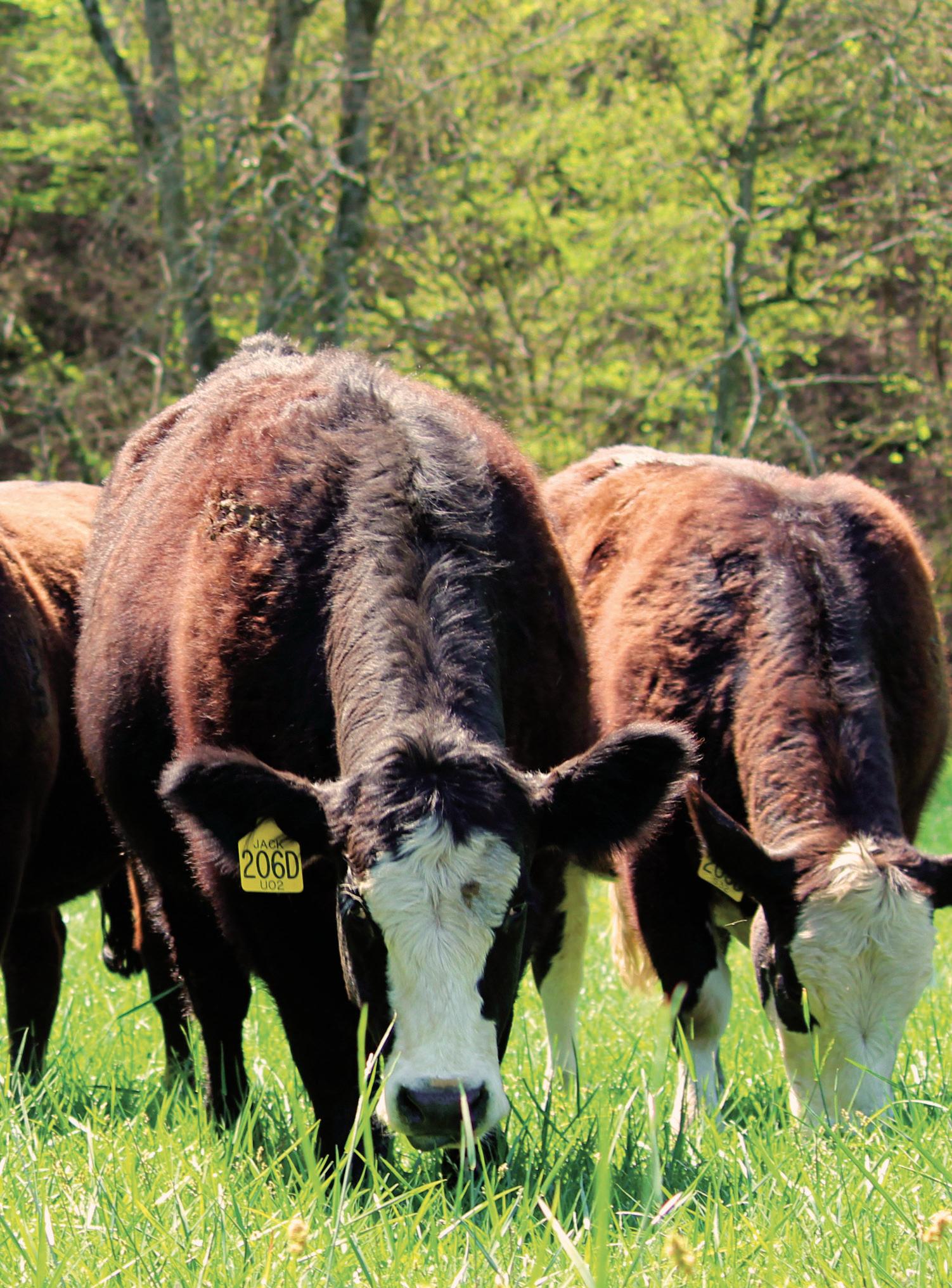
FORAGE
BAXTER BLACK: What’s Christmas to a Cow?
BY LEW STRICKLAND, DVM
Animal Science Department, University of Tennessee

In memory of the late Baxter Black and upcoming Christmas time, I thought it would be fitting to use one of his ‘cowboy poems’ for the December article. Hope you can enjoy time with friends and family this season. Merry Christmas everyone!
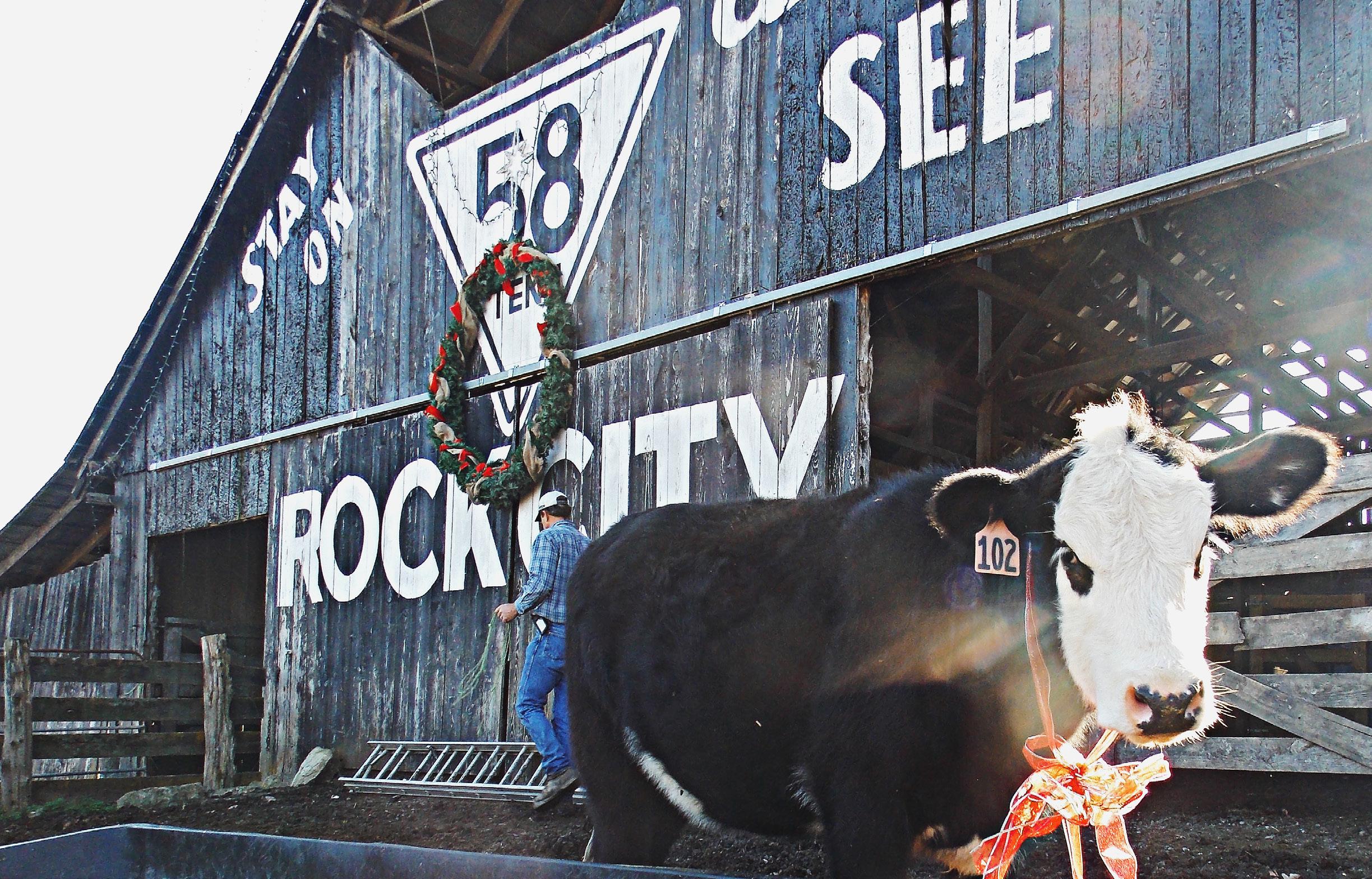
I know you’ve prob’ly asked yourself, what’s Christmas to a cow? You’ve not! Well maybe, just perchance I’ve got you thinkin’ now, When we march out on Christmas morn like nothin’s goin’ on, Has Yuletide struck the night before and disappeared by dawn? •••
Were plastic sleeves a’hangin’ up around the calvin’ shed? Did visions of molasses blocks cavort inside her head? And did she lay awake all night tensed up anticipating Or, in excitement, milk her bed by accident, while waiting? •••
Do cows pretend to be just cows, devoid of all intrigues But really lead a secret life like women’s bowling leagues? Did we just miss the mistletoe? Did all the clues elude us? Does she believe in Santa Claus or just Santa Gertrudis? •••
And if we looked would we see sign of reindeer in the pen Or would we just convince ourselves the goat got out again? And after we’d all gone to bed would they join in a hymn And sing that little manger song they learned in Bethlehem?
I guess that it don’t matter much if cows believe or not. We’ll fork her out a flake of hay and head back in a trot To celebrate our Christmas Day and all that we espouse And when we say our dinner grace we’ll thank him for the cows. •••
For the livelihood they give us and life we get to share. But do the cows have Christmas cheer? Who knows, but just beware if you see chicken tracks among the straw and drying chips, you better check suspicious cows for eggnog on their lips.
CATTLE HEALTH 18
•••
DRIVING BEEF DEMAND
BY VALERIE BASS
Executive Director of the Tennessee Beef Industry Council
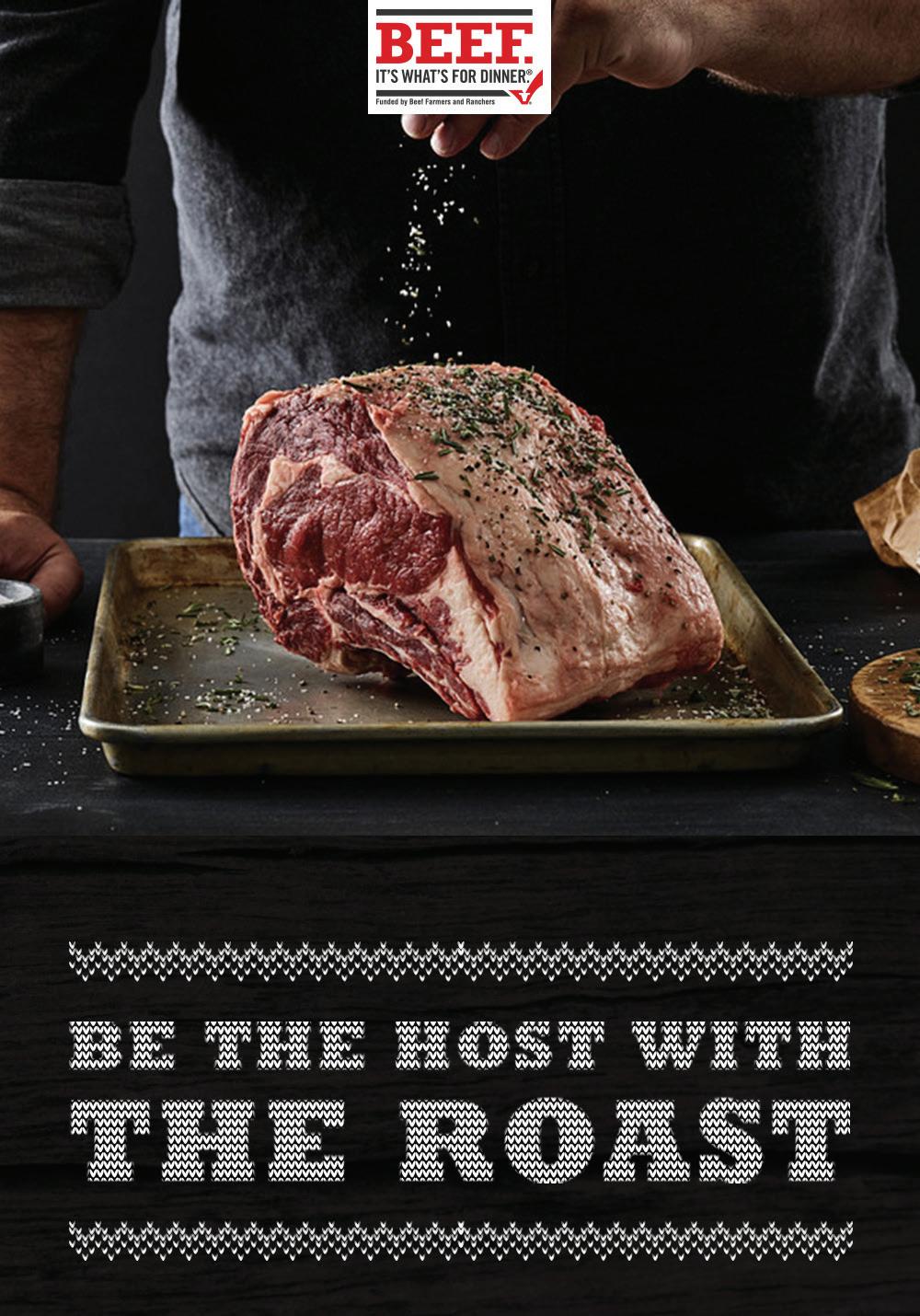


Merry Christmas! Wishing your family health, hope, and happiness in 2023.
I wanted to take a moment, as we embark upon another year, to briefly outline how the Beef Checkoff and Beef Promotion programs operate in Tennessee. Cattle producers are appointed and can serve two, 3-year terms. The boards meet quarterly to review, direct, and approve programs and activities implemented by staff. Each year, the board approves a marketing plan and a budget, and undergoes a third-party financial audit. The boards are overseen by USDA and the Tennessee Department of Agriculture. Organizations providing leadership to the boards include Tennessee Cattlemen’s Association, Tennessee Farm Bureau Federation, Tennessee Livestock Markets Association, Tennessee Beef Cattle Improvement Association, American Dairy Association of Tennessee, University of Tennessee Extension, and Tennessee Department of Agriculture.

The board has mapped out several exciting projects for 2023 including a ‘Farm Mom’ video series that communicates with other moms the similarities of and realities of raising kids, cattle, and crops, a holiday & summer grilling billboard campaign, an influencer beef tour, participation in the NASCAR Infinity Series, and ‘Always On’ social media posts. These are just a sample of some of the beef demand building, consumer needs meeting projects on tap for the upcoming year. Please follow us on Facebook and share the outstanding BEEF content with your friends (search Tennessee Beef Industry Council). This is a great way to encourage BEEF for the Holidays. We hope you enjoy it around your table this season.
Quote of the month: “In winter’s chill or summer’s heat, a farmer works so the world can eat.” - Anonymous
Board members are Patterson Freeman (Gibson Co.) - Chair, Tom Barnett (Montgomery Co.) – Vice Chair, Zane Vanover (Sullivan Co.) – Treasurer, Jay Yeargin (Weakley Co.) – Secretary, Richard Brown (Putnam Co.), Jennifer Houston (Monroe Co.), Larry Cunningham (Rhea Co.), Jim Ligon (Putnam Co.), John Bradley (Wayne Co.), Dustin Pearson (Washington Co.), Marty Gambel (Lawrence Co.), Paul Moss (Henry Co.), and advisors Wendy Sneed and Dr. Katie Mason, and serving ex-officio Russ Uselton (Bedford Co.) – Past Chair, Kristina McKee and Celeste Balckburn (both Cattlemen’s Beef Board members).
19
BEEF PROMOTION
STRETCHING HAY WHEN SUPPLIES ARE TIGHT
BY DR. KATIE MASON
Extension Beef Cattle Specialist, University of Tennessee Institute of Agriculture
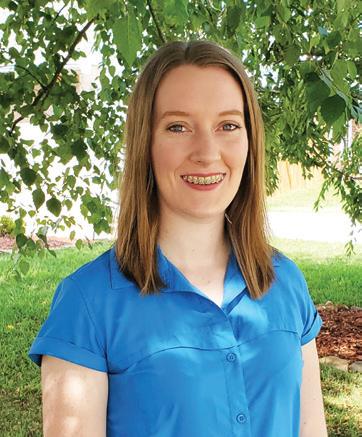
Due to drought conditions over the summer, it is shaping to be a winter-feeding season of tight hay supplies. It is important to use what hay you do have efficiently, and here are a few ways to make sure of that:
1.
Understand your hay supply and cattle demand
A mature cow will typically eat 2 – 2.5% of her body weight in dry matter per day. To feed 30 mature cows for 145 days, it would require about 71 tons of dry matter. After accounting for dry matter content in average hay, and a 10 – 15% waste loss, it would require about 96 total tons of hay. This is also a crucial time to identify any nonproductive animals by pregnancy checking and culling open cows.
2. Test your hay and match to cattle
nutrient requirements
The only way to know the quality of the hay you are feeding is to take a sample and have an analysis conducted. When you know the exact nutrient composition of the hay, you can strategically use higher quality hay for lactating cows, first calf heifers, or growing calves, and lower quality hay for dry cows.
3. Reduce waste during storage and at feeding Storing hay improperly can result in significant losses due to weathering and refusal. Ideally, hay should be stored
under cover or at least on a well-drained surface with plenty of air flow. Additionally, providing a barrier such as a hay ring can result in less hay loss than setting a bale directly on the ground.

4. Consider economical forage alternatives
Popular options for forage alternative are range cubes, straw, or cottonseed hulls. Straw and cottonseed hulls may provide “bulk” in the diet, but do not provide much in the way of energy, and should be carefully supplemented to be successfully utilized. If you purchase additional hay, request to have it tested to ensure that you are getting a nutritionally valuable product.
5. Observe body condition
Strive to keep herd average body condition between 5 and 6. Exercise careful judgment by maintaining the cow herd in a reasonable condition that will not affect future performance, but recognize when there is room to make short-term sacrifices if cows are in good condition.
There are just a few of many considerations for managing short hay supplies. Do not hesitate to reach out to your local county agent when assessing your winter feeding situation to receive guidance on how to make the most out of your hay this feeding season.
BEEF CATTLE EXPERT 20
RANCH ESTATE PLANNING
BY JOE EASLEY COUNTRY Financial Representative and Insurance Agency Owner

Advice for keeping the ranch or farm in the family – or not
The USDA reports that 70% of U.S. farmland will likely change hands during the next two decades. Even more critically, it’s estimated that half of farming families are operating without an estate plan in place. Is your family’s legacy part of these statistics?
Keep it in the family
For many farming families, the first decision is to keep the ranch or farm “in the family,” though often with the added issue of farming and nonfarming children. What are parents to do? Treat children equally or fairly – and what’s the difference?
In a family with one farming and one nonfarming child, if the parents treat the children equally, each will receive a half interest in the farm. This could be considered unfair to the farming child who will work 100% of the farm and receive just 50% of the income. If the entire farm goes to the farming child, then the nonfarming child may receive little. A third scenario is for parents to leave farming assets to the farming child and nonfarming assets to the nonfarming child. Oftentimes, though, there can be a significant imbalance in assets.
One way to solve this dilemma is through life insurance. By purchasing life insurance on the parents, an estate can be created for the nonfarming child or provide the farming child with money to purchase farming assets from their nonfarming sibling.
If not the family, then who?
Planning considerations change if there are no heirs or family members interested in maintaining the farm operation. A number of factors come into play, including your desire for retirement, income, care in infirmity and tax planning.
Review your options. Is there a neighbor who may want to purchase the operation? What about an employee? Could you help them “buy into” the business? Beyond just the ownership considerations, how do you transition control? Or, would a charitable gift of property make sense? Working with a trusted professional can help you navigate these alternatives and formulate a plan.

The power in the plan
Because of the importance of planning in the agribusiness community, your insurance provider should provide you with the tools, protection and ongoing support essential to legacy planning in order to allow the farm to continue in the family amid today’s financial challenges. If you’re a younger member of the family, focused on your own family and career – and your parents still own or are part of a farming operation – it may be time to begin addressing these pivotal issues.
Submitted by Joe Easley at COUNTRY Financial. For more information, visit www.countryfinancial.com or call 615-7913264.
GUEST COLUMN
21
WINTER HAY FEEDING:
TIPS & TECHNIQUES
BY JASON GARRETT UT Extension Overton County
Many producers in Overton county (and Tennessee) have started the long process of seasonal hay feeding. This process usually starts in November or December, depending on frost, warm temperatures, forage availability, and stocking rates, and lasts until late March-mid-April. Producers use various ways to feed their cattle during this long, wet, cold time of year. This article will discuss a few techniques Overton county cattlemen use to feed hay, and some pros and cons of the techniques used.
Cattlemen must always remember hay is valuable. Especially good quality hay. So, it costs a lot of money to produce and take up hay when one considers:
• Seed
• Fertilizer/ lime
• Equipment cost
• Wear and tear on equipment
• Spraying/Chemicals
• Fuel
• Labor/ time
The most common technique producers practice is the use of hay rings. Hay rings save hay, but one must consider the type of ring being used. Hay rings should have a skirted bottom. This saves hay from being pulled out by catching some of it. Hay rings are useful to producers who can’t feed every day, or have farms away from the home base and need to set out multiple bales at once. One must realize it gets really messy around hay ring areas. It’s good to have multiple sacrificial areas to place rings so one doesn’t mess up too much pasture. These areas will get muddy fast, so be sure to move them often to keep cattle out of deep mud. Hay rings can be aggravating. Small calves can get trampled, ear tags ripped out, and cows getting down in the mud as a result of using hay rings. But if used, rings can save much-needed and valuable hay during the winterfeeding months. It’s a good practice to install a high-use area when using rings.

Unrolling hay bales is another feeding practice used widely. This practice allows cattle to consume hay without the close contact of hay ring feeding. Unrolling decreases mud, spreads nutrients over the pasture, allows bedding in cold weather, and allows producers to look over and check cattle better. The downside is hay waste. In damp conditions, hay is pushed down and ruined. Cattle also pass manure and urine on hay, restricting consumption in these areas. Low-quality, weedy hay is what I personally like to unroll. Cattle can pick through and consume the good and use the bad for bedding in bad weather. I like to feed my first cutting of hay in rings and save my fall cutting for unrolling when weather conditions are bad or the hay has a lot of filth in it. Fall hay if not weed or mature johnsongrass free can leave a lot of debris in hay rings.
The use of bale processors has become a popular method of distributing hay to cattle. These tractor-pulled implements chop up round bales of hay and shoot it out in windrows for cattle to consume. Bale processors are great for chopping up johnsongrass and other warm season annual type hay by reducing these large stemmed plants to small particles, reducing waste while increasing consumption rates. The high wind rows processors make reduces waste like the conventual un-rolling method. Cattle stand and eat like there at a feed bunk, and are not as compelled to lay in it or trample hay in the mud. Also, using bale processors distributes organic matter over pastures and doesn’t leave a mess like hay rings. Bale processors are available for costshare on TAEP programs.
For any agriculture research-based information, contact Jason at Overton Extension (823-2735). UT Extension offers equal opportunities in programs and employment.

22 GUEST COLUMN

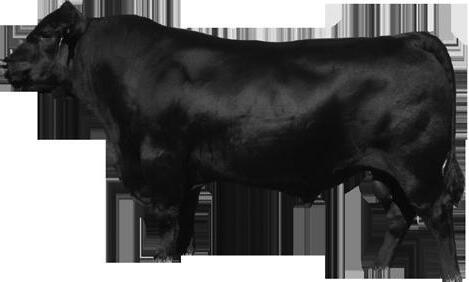









AMONETTFARMS.COM (931) 319-1411 • (931) 252-1907 • (931) 864-6481 BYRDSTOWN , TN One of the largest selections of private treaty Angus Bulls in the South! Numerous AI Sires Represented Easy Calving • Strong for Milk • Docile Growth & Performance • Foot & Leg Integrity All bulls qualify for Maximum TAEP Reimbursement TEXT BEEF TO 25827 FOLLOW US ON SOCIAL MEDIA CONVENTION.NCBA.ORG CATTLE INDUSTRY CONVENTION & NCBA TRADE SHOW FEBRUARY 1-3, 2023
Tommy Burks Memorial Scholarship

Submitted by the Upper Cumberland Angus Association
The Tommy Burks Memorial Scholarship is in honor of the late Tennessee State Senator, Tommy Burks, who was also a full-time cattle, tobacco and hay farmer from Eastern Putnam County. Burks did a lot to advance farm families and agriculture during his time serving in the Tennessee Legislature for 28 years. The Hyder-Burks Pavilion at Tennessee Tech University, where the Upper Cumberland Angus Association Annual Spring Time Select Sale and meeting is held, was dedicated in his honor as well as Mr. Clyde Hyder.
The scholarship program was first started back in 2001 when UCAA board member Neal Richardson, of Lancing, TN, donated a yearling heifer to be auctioned off during the UCAA Spring Time Select Cattle Sale where the proceeds of the heifer went toward a scholarship. From then on, the program took off and now the UCAA awards multiple scholarships each year to outstanding, deserving students in the agriculture industry. Besides the heifer, local businesses donate merchandise and services, semen companies donate semen, and local coops and feed stores donate tons of feed to be auctioned off in a live auction during the UCAA annual meeting and banquet the Friday night before the UCAA Spring Time Select Cattle Sale on Saturday. On Saturday, the donated bred heifer leads off the UCAA Spring Time Select Sale which is a high quality, member consigned, female sale.
The goal for the scholarship program is to give assistance to the future of our industry in getting started furthering their education and starting their careers. The scholarships are open to entering college freshman, enrolled college students or graduate students who are pursuing a career in agriculture. An emphasis will be given to students enrolling in Tennessee Tech University, however it is open to other schools. Each scholarship award will be for a one-year period and each scholarship winner will receive between $500 and $2,000.
Scholarship Requirements:
• Each candidate must have a proven interest in Agriculture.
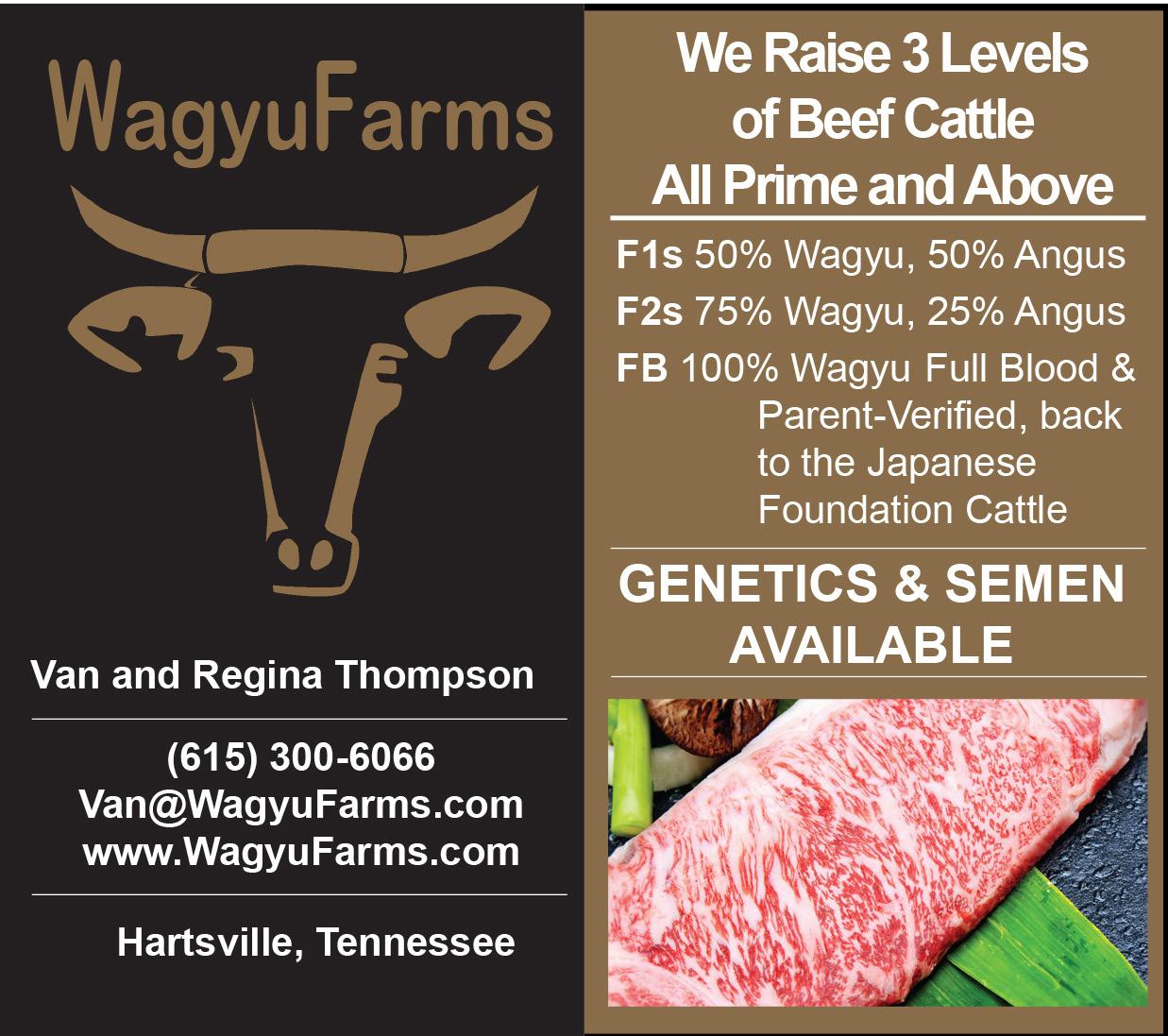

• Satisfactory academic performances in current scholastic pursuits.
• Be a Tennessee resident.
Application Requirements:
• Essay discussing your background in agriculture, career goals, and in what financial way will this scholarship help you attain these career goals
• All contact information must be provided: name, address, phone number, email, and birthdate
• Two letters of reference
• Copy of most recent transcript; High School Seniors need to include a copy of ACT or SAT test scores
• Community Involvement
• Agricultural Involvement
• Leadership Roles
Incomplete applications will not be accepted. Completed applications and other paperwork must be postmarked by February 28, 2023 and mailed to: Kristen Brown UCAA Scholarship Committee 9402 Spring Creek Rd Cookeville, TN 38506
After all applications have been evaluated, all applicants will be notified via email whether they received a scholarship or not, and if they did the amount they received.
The scholarship will be presented to the successful applicants at the Upper Cumberland Angus Association annual banquet held on the Friday night before the UCAA Spring Time Select sale (date will be in April), at the HyderBurks Arena, TTU, Cookeville, TN, and recipients are required to attend. Checks will be made out jointly to the recipient and the school they are attending.
24
TENNESSEE NEWS
Walters State Community College announces the addition of a butchery program. From left are Dr. Tony Miksa, president of the college; Astrid Friedrich of the Chamber of Skilled Crafts of South Thuringia, Germany; Chef Joe Cairns, head of the Maples Institute for Culinary Arts at Walters State; Dr. Anita Ricker, assistant dean of workforce development at the college; and Tobias Bolle, with the Association of Chambers of Commerce for Service and Industry, Germany.
Walters State Community College to Offer Butchery Program
“It is really incredible how all the things came together for us to get this program off the ground” shared Joe Cairns, the Department Head of the Maples Center for Culinary Arts Program and Associate Professor. Joe is speaking about the development of the Butchery Program being offered next fall at Walters State in Sevierville designed to address the need for butchers in East Tennessee and beyond.
Joe gave credit to Mike Sharp of Sevierville for helping to plant the seed that the need existed for this type of program. Mike is a retired extension agent that served in numerous counties in East Tennessee and specialized in beef production. Mike served as a Board member for the Tn. Beef Council and Tn. Cattlemen’s Association. Mike helped arrange tours for the Culinary Students at Walters State where they visited farms and discussed the cattle life cycle. Joe learned a lot about the industry and was struck by the challenges producers have in getting their beef processed locally. One of Joe’s classes began doing fabrication work where they would break down cuts of meat. Joe reached out to a contact with Food City (Gary Goforth, a regional supervisor that had experience working on rails in processing facilities) to help teach the students how to break down a beef and pig carcass. Around this time, Walters State got a call from a private group in Thuringia Germany interested in developing partnerships for plumbing and butchering programs. Their interest is in learning from the US model for training students in these disciplines and sharing how the German apprenticeship model works.
At about this same time, a Dean at Walters State shared that there were grants available, up to $1 million, to assist educational institutes developing culinary programs. Walters State applied for and received a grant focused on establishing the butchery program. They are hiring

adjuncts including a regional Food City Meat Supervisor to teach hands on processing and Dr. Dwight Loveday, a longtime University of Tennessee Meats Specialist as a lecturer. They are creating the infrastructure and building the curriculum for a 30-hour certificate with 6 new classes. This will include classroom work, two labs and a supervised work study internship. A state approved 3-year butchery apprenticeship program is also being offered. Once completed, students will obtain a Butchery Certificate as either a Meat Cutter, Butcher All Around, or Butcher with Processing. These have been approved by the Tennessee Board of Regents. Noncredit courses will also be offered. Walters State will not be breaking down full animals on site but will start with primal cuts. Joe hopes to eventually sell meat cuts on campus.
Joe shared that Walters State will be working with Food City and Harris Meats in Greeneville to assist students with hands on training and the German group for advice on setting up the labs and the apprenticeship program. The German group has been to Sevierville, including visiting in November when Walters State made their formal announcement. There will be opportunities for students to visit Germany as well to learn from their programs.
Deborah Williams with the Walters State Marketing department shared “We want to provide opportunities for local students and support local business community's needs. We see an overriding need regionally and nationally. Our mission is to provide for these needs and respond and make changes accordingly.” No other community college in Tennessee or in the region currently offers this type of program.
Students interested in learning more should search for the Culinary Arts Program at Walter State online or call 423585-2600.
25
TENNESSEE NEWS
UTIA Researchers Study Feed Efficiency of Pregnant Angus Heifers

While cattle production has historically focused on increasing the feed efficiency of steers to produce a marketable beef product, researchers at the University of Tennessee Institute of Agriculture are studying the feed efficiency of heifers, whose health and pregnancies set production up for success.
Funded by the Tennessee Beef Promotion Board, the research is led by Phillip Myer, associate professor in the Department of Animal Science, who specializes in microbiology of the four-chambered stomach of grazing animals. Gabbi Martin, a graduate student in the Department of Animal Science, is working with Myer. The team is examining the nutritional physiological changes that occur during pregnancy, the impact those changes have on the rumen (stomach) environment, and the resulting feed efficiency in Angus heifers. The information will allow beef producers to modify strategies to improve overall sustainability of heifers and their calves.
“Ideally, the cow is a long-term constituent of a herd and it is important to examine the rumen environment to improve the cow-calf enterprise,” says Myer. “This work is important for determining the rumen microbial changes that occur in heifers during pregnancy and their impact on nutrition and feed efficiency.”
For producers, it’s optimal to have cows that can produce efficient calves while maintaining a stable, efficient rumen through all stages of production, including pregnancy. To achieve this, Myer and his team are looking at the changes occurring within the rumen environment and determining the impact those changes have on the host. This information will improve the sustainability of the cow-calf enterprise.
“I am excited about the current and future implications of this work in context of production and promotion of highquality beef for the producers of Tennessee,” says Martin, who is a fifth-generation agriculturalist.
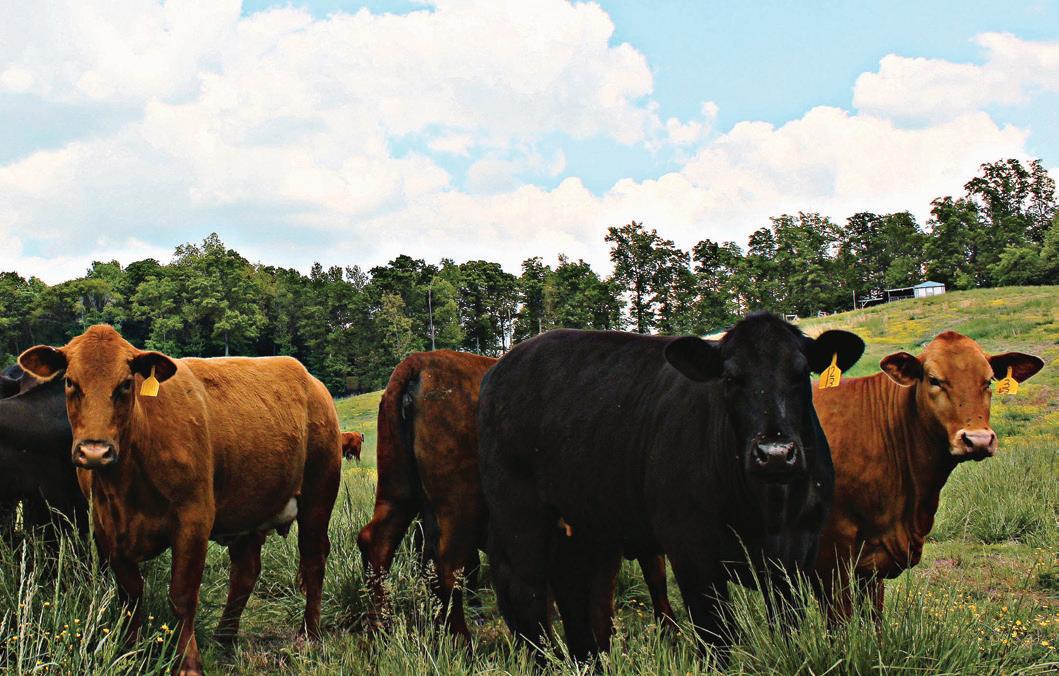
Research for the project titled “Pregnancy influences on the feed efficiency and rumen environment of Angus heifers in producing a quality beef product” began in October 2021 and is being conducted at the East Tennessee AgResearch and Education Center near Knoxville and the Plateau AgResearch and Education Center in Crossville. Since the project’s start, the team has produced one publication that details several potential biomarkers of feed efficiency in both low- and high-feedefficient heifers. Additionally, the research team found correlations between rumen bacteria and metabolites found in the rumen fluid.
More publications are expected to follow.
NATIONAL NEWS
Nominations Accepted for 2023 Environmental Stewardship Award
Applications are being accepted until March 10, 2023, for the National Cattlemen’s Beef Association 2023
Environmental Stewardship Award. Established in 1991, the Environmental Stewardship Award Program annually recognizes outstanding stewardship practices and conservation achievements of cattle producers across the nation.
“Cattle producers, as individuals and as an industry, are actively working to protect and improve the environment, because they know environmental stewardship and good business go hand-in-hand,” said NCBA President Don Schiefelbein. “A common trait among all ESAP winners is the desire to leave the land in better condition for future generations and inspire the next generation of land stewards.”
Any individual, group or organization is eligible to nominate one individual or business raising or feeding cattle. Individuals and families may not nominate themselves, although nominees may be involved in the preparation of the application. Past nominees are encouraged to resubmit applications; however, previous winners may not reapply.
Along with a typed application, one nomination letter and three letters of recommendation highlighting the nominee’s leadership in conservation are required. Nominees do not have to be members of NCBA but should support the objectives of their state and national organization.
Award winners are selected by a committee of representatives from universities, conservation organizations as well as federal and state agencies. For guidance, the judges consider the management of water, wildlife, vegetation, air, and soil along with leadership abilities and the sustainability of the business.
Seven regional winners will be recognized at the 2024 Cattle Industry Convention in Orlando, Fla., in February 2024, and the national winner will be announced at the Celebration of America’s Land Stewards Event in Washington, D.C., in spring 2024. Travel and registration are provided by ESAP for winners.
For more information and to download the nomination packet, visit www.environmentalstewardship.org.
26
TENNESSEE NEWS

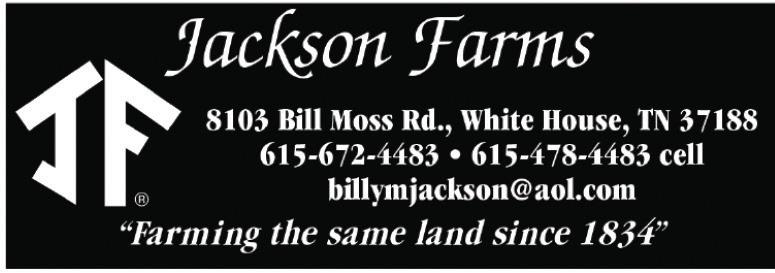



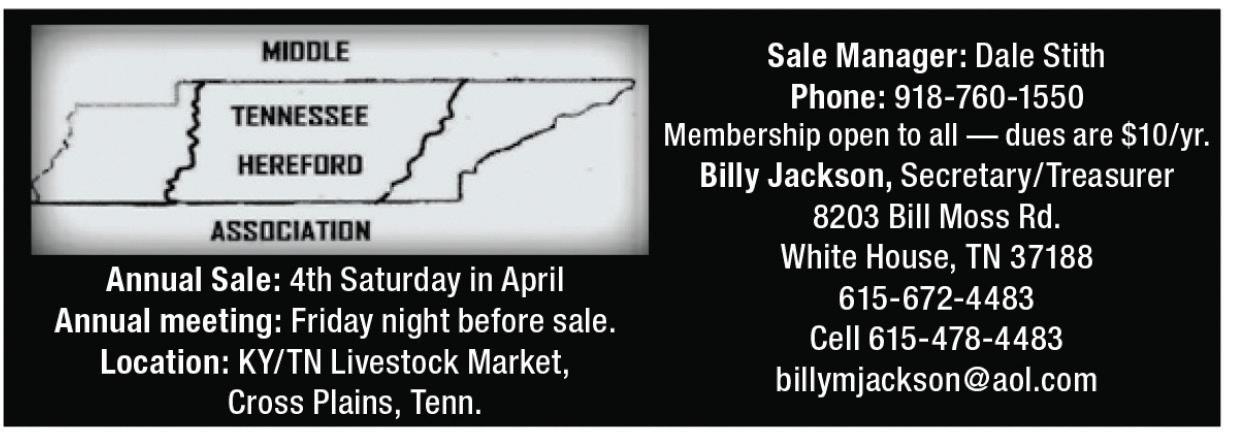
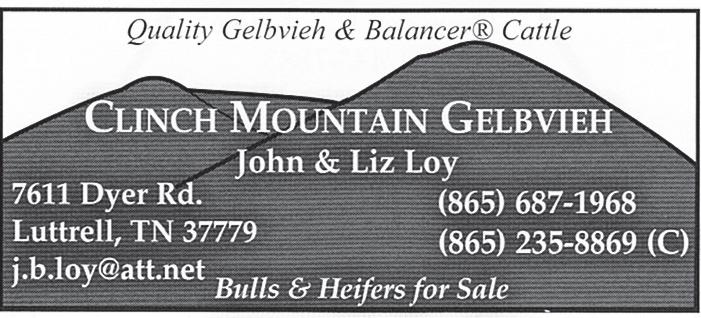
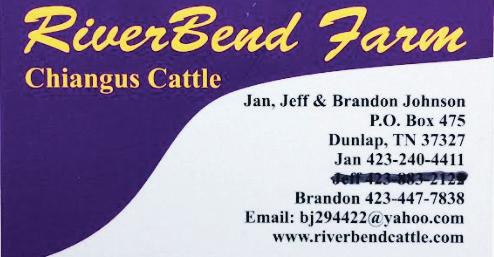
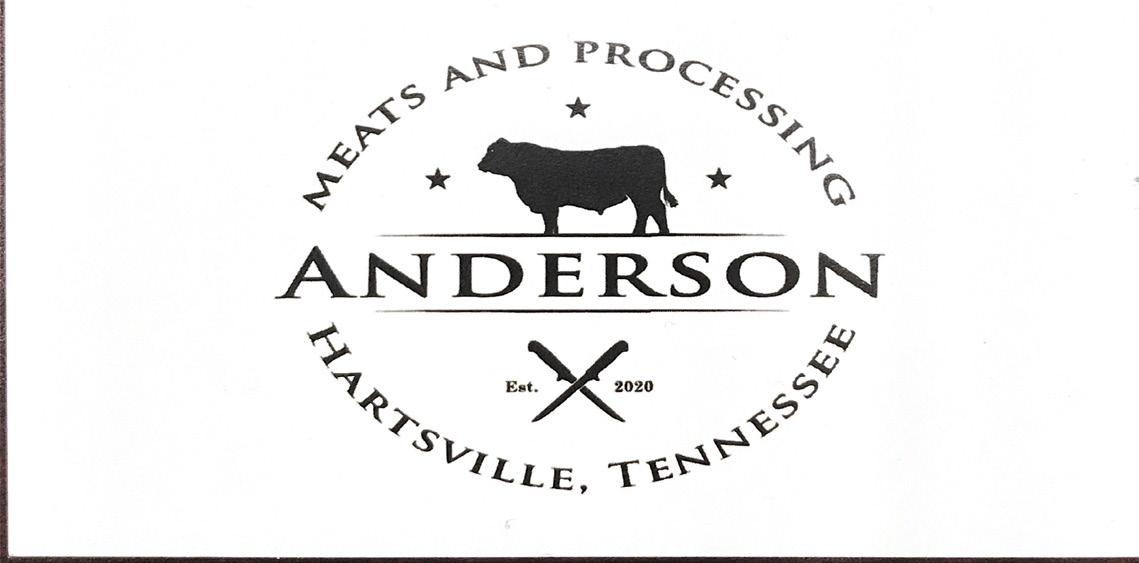
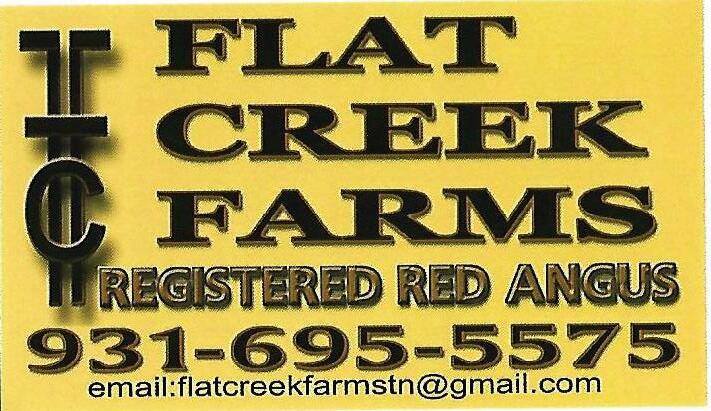
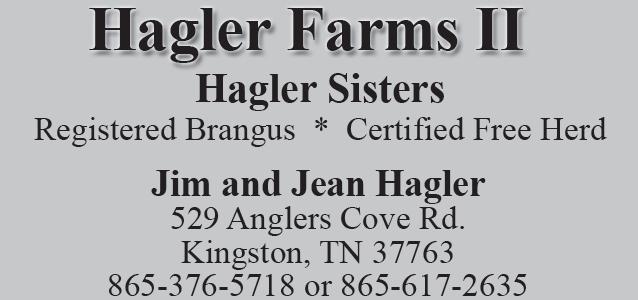
27 for Club Steers, Shorthorn, Shorthorn Plus, and Blue Roan Heifers www.smokymountainfarmandranch.com Registered Polled Herefords Homozygous Black and Homozygous Polled Bulls & Heifers for Sale (615) 374-7990 PO Box 215 Cross Plains, TN 37049 Phone: 615-478-4483 PO Box 215 Cross Plains, TN 37049 Phone: 615-478-4483 billymjackson@aol.com Farms & Businesses to consider for your needs 865-617-2635 Kathryn Ingram 423-337-1383
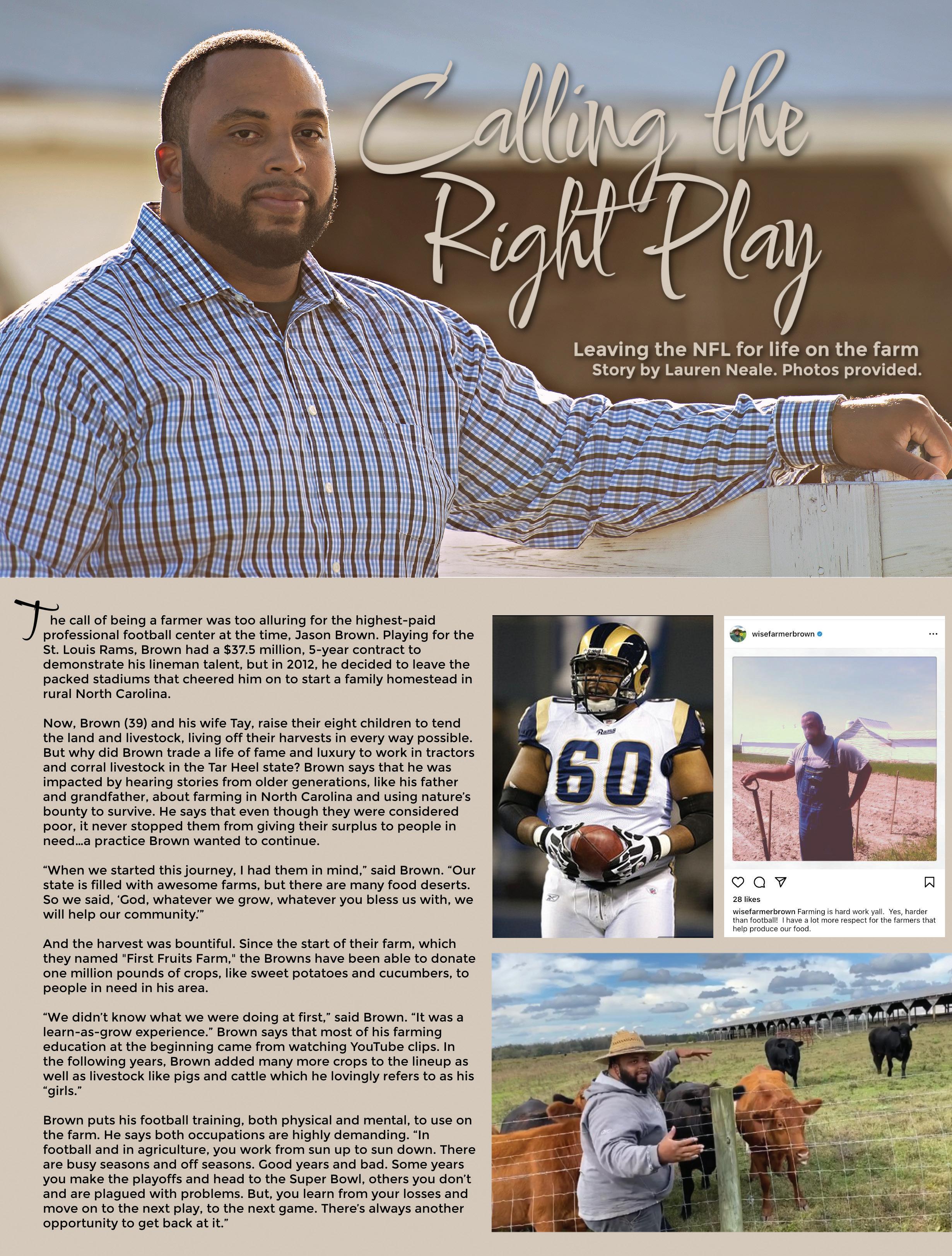
28

29
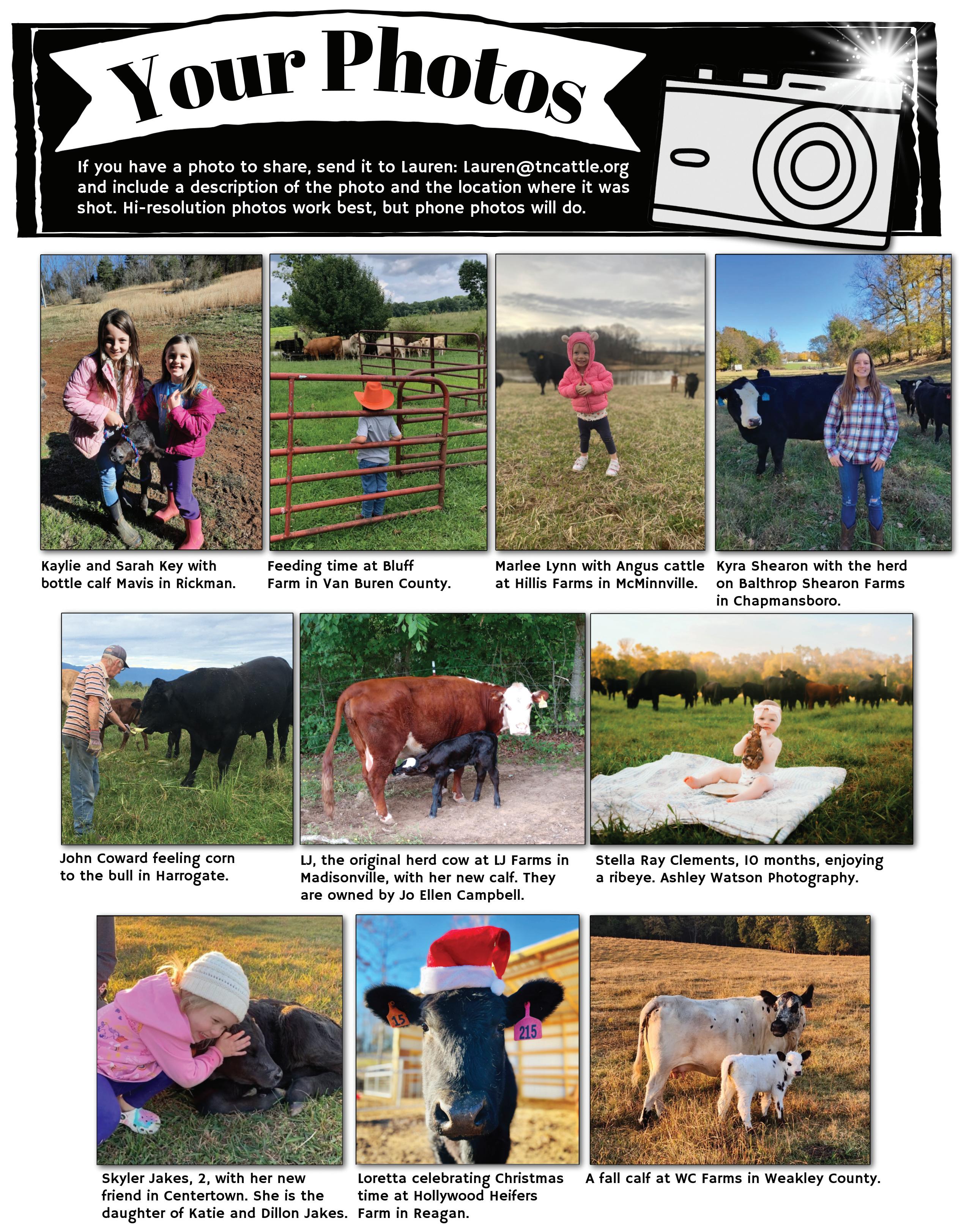
30
AAmonett
Anderson Bob Ryan Clinch Mtn
Farm Credit Mid-America Farmington Five Oaks Flat Creek FPL Fussell Gibson Gilreath Hagler II Jackson Larry Brandon Ligon
Mid South Ag Mid TN Hereford MTREC NCBA Protrition Ragland Riverbend
23 27 5 27 16 7 27 27 13 4 5 27 27 27 24 8 9 27 15 23 7 6 27
Select Trailers Smoky Mtn
TBIC TN Farmers Wagyu Woodard
9 27 19 32 24 9
2022-2023 CALENDAR
DECEMBER
DEC. 1: TCA Scholarship Applications due: www.tncattle.org/youth
DEC. 2: Knoll Crest Farm Total Performance Bull Sale - Red House, VA
DEC. 3: Platinum Alliance Sale - TTU in Cookeville, TN
DEC. 8-10: US Cattlemen’s Association’s Annual Meeting - Nashville, TN
DEC. 10: NW TN Cattlemen’s Female Sale - Martin, TN
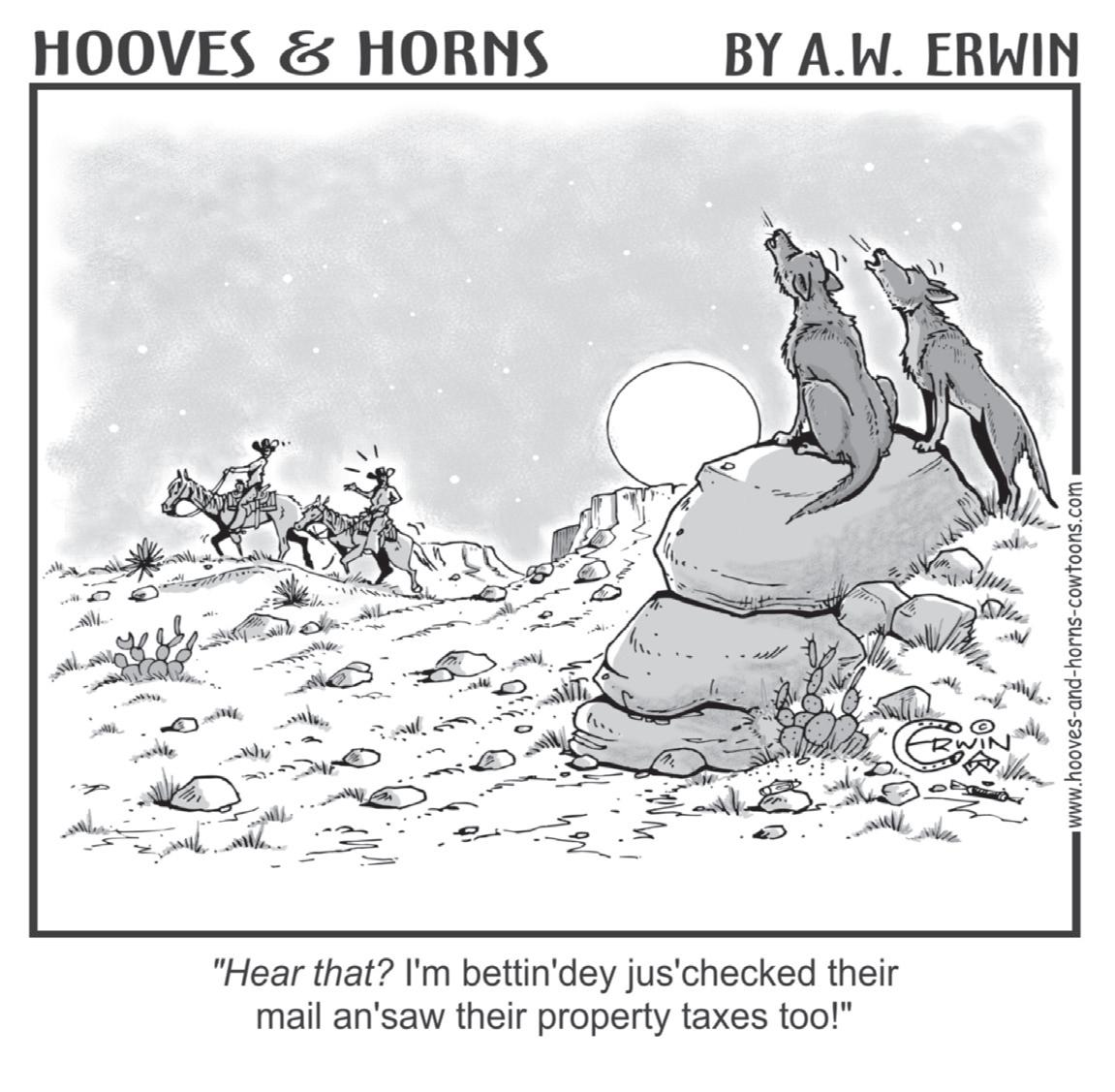
DEC. 19: TCA 2023 Winter Meeting Pre-Registration Discount Ends

JANUARY 2023
JAN. 2-3: TCA Convention & Trade Show - Lebanon, TN
JAN. 12: UT’s Bull Development & Evaluation Program Sale - Spring Hill, TN
FEBRUARY
FEB. 1-3: Cattle Industry Convention and NCBA Trade Show - New Orleans, LA
FEB. 18: Yon Family Farms Spring Sale - Ridge Spring, SC
FEB. 18: MTSU B&B Preview Show - Murfreesboro, TN
FEB. 24: Tennessee Grazing Conference - Ward Ag Center, Lebanon, TN
FEB. 27: Robert Elliott & Sons Production Sale - Adams, TN
MARCH 2023
MARCH 11-12: Tennessee Agribition Show and Sales - Lebanon, TN
MARCH 18: West TN Spring Classic Cattle Show - Trenton, TN
APRIL 2023
APRIL 29: Cumberland Mountain Showdown - Pikeville, TN
ADVERTISING INDEX
31
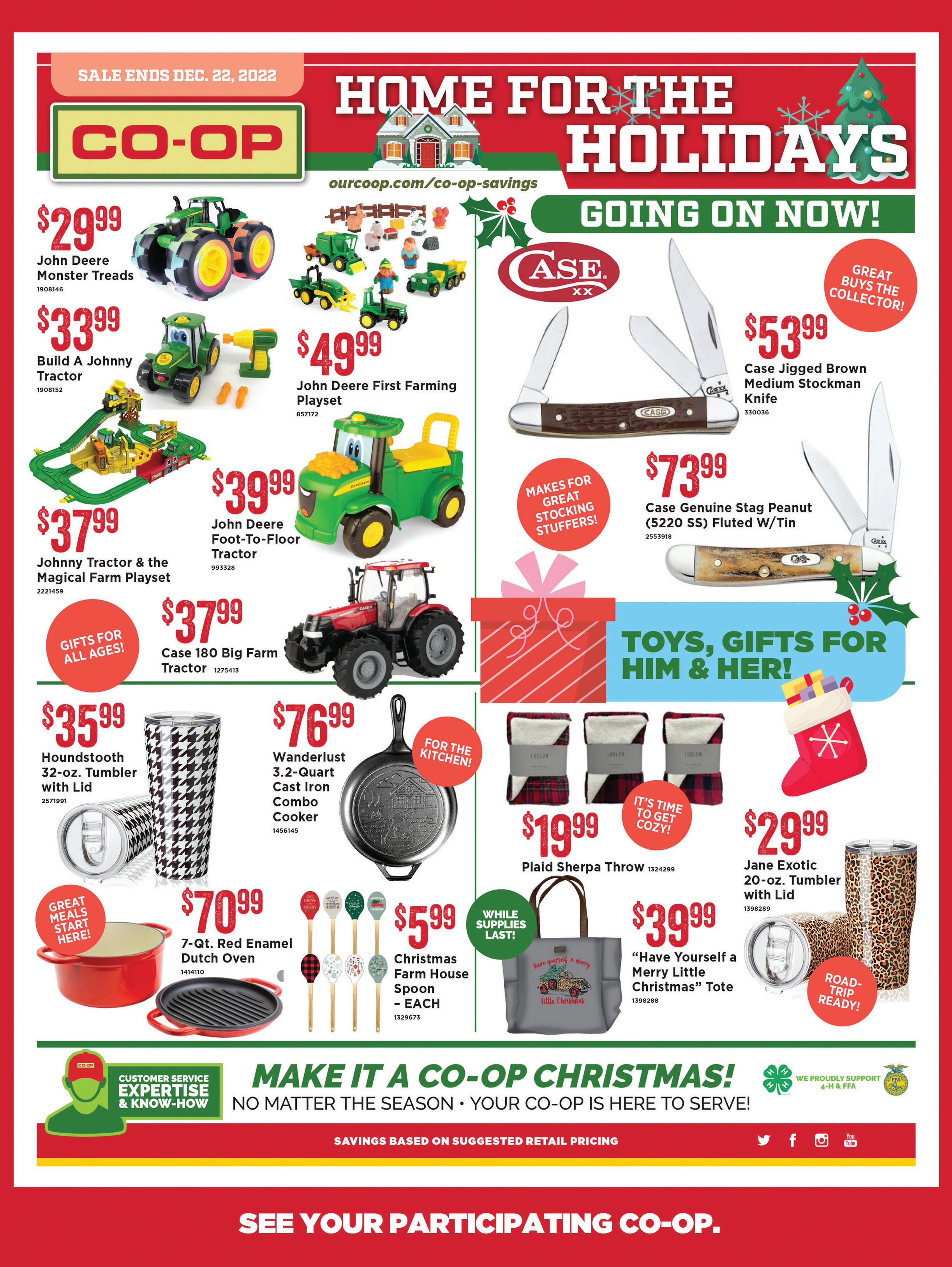































































 BY DENNIS FENNEWALD, PhD School of Agriculture, Tennessee Tech University
BY DENNIS FENNEWALD, PhD School of Agriculture, Tennessee Tech University

























































